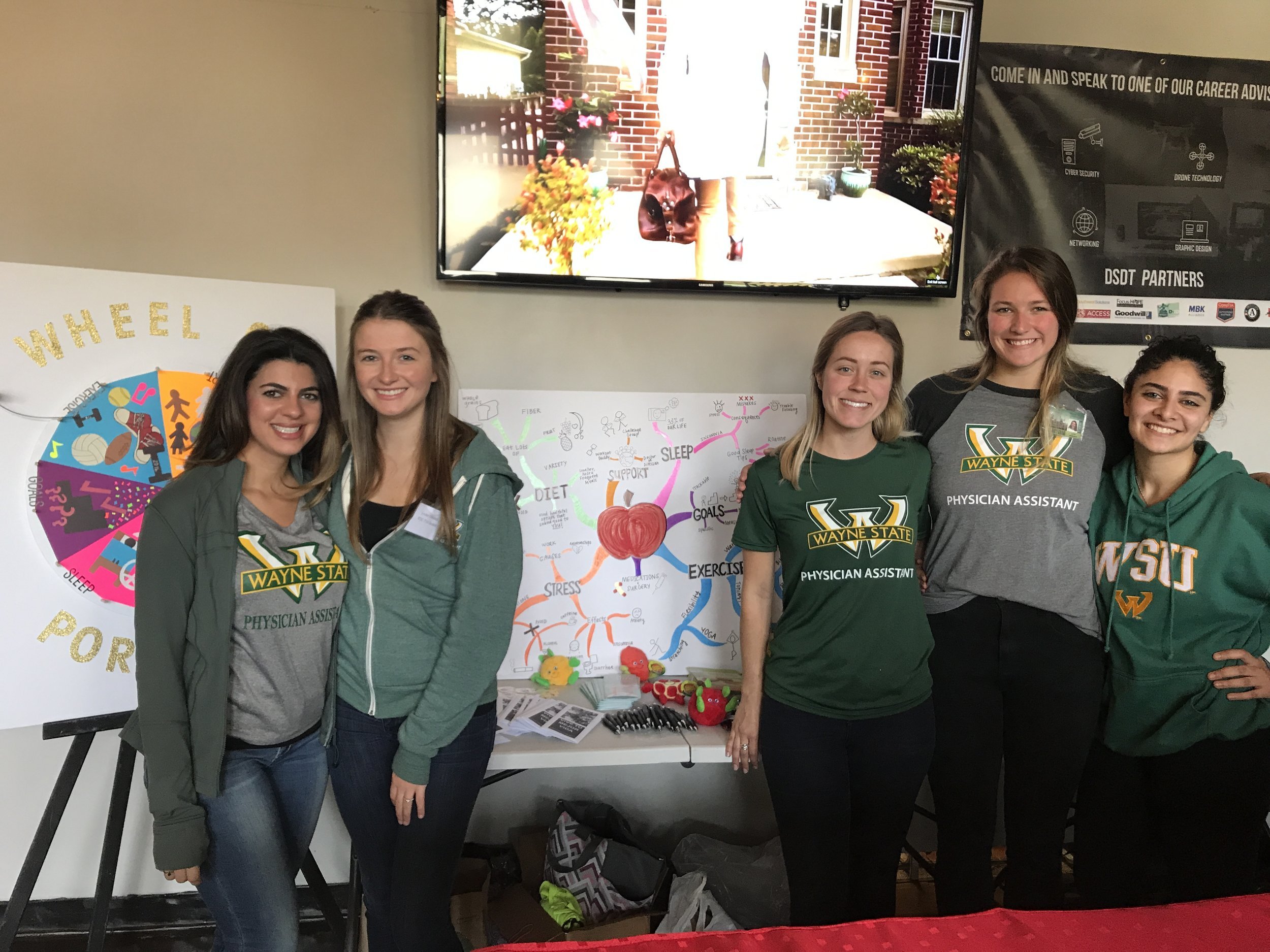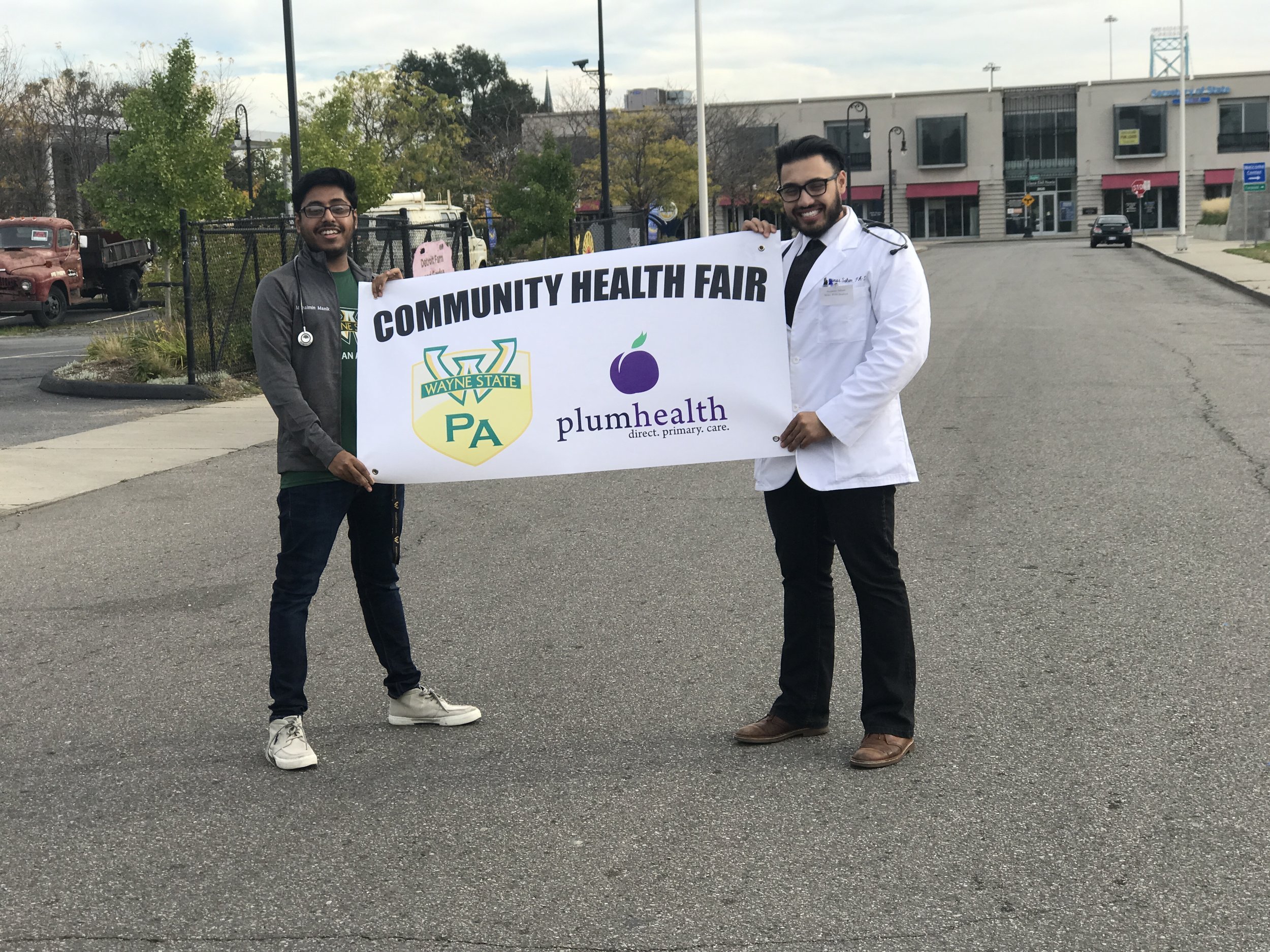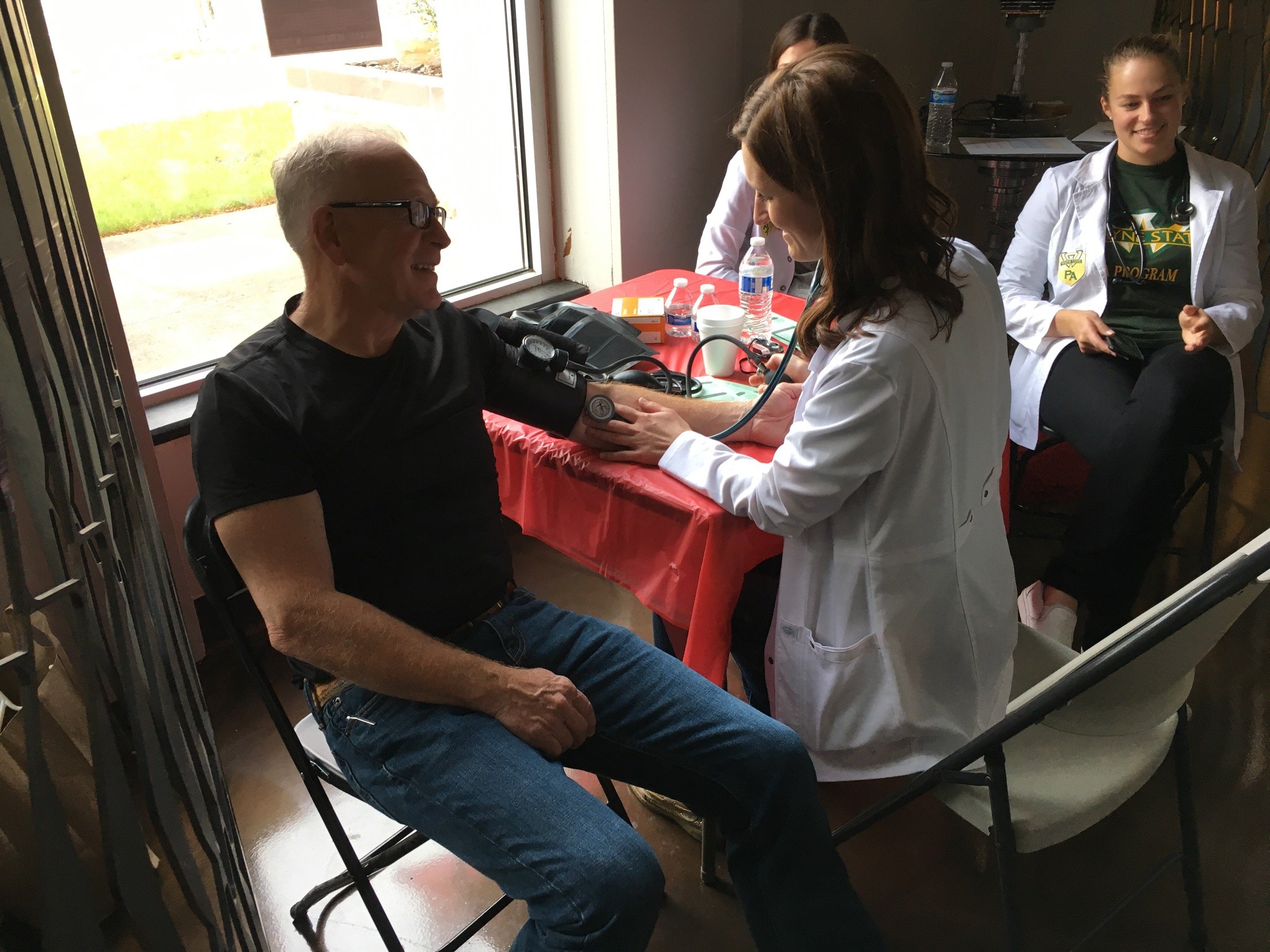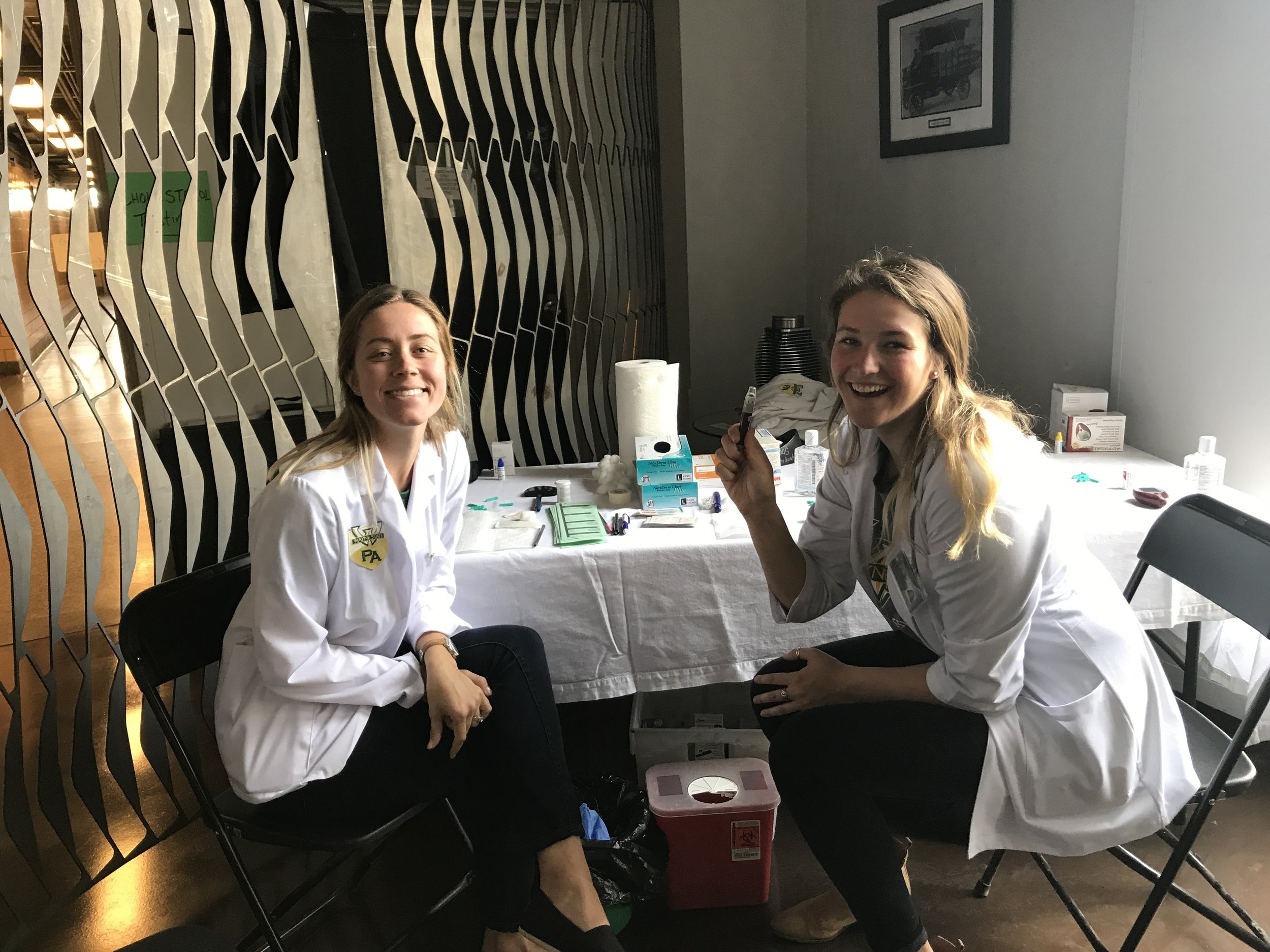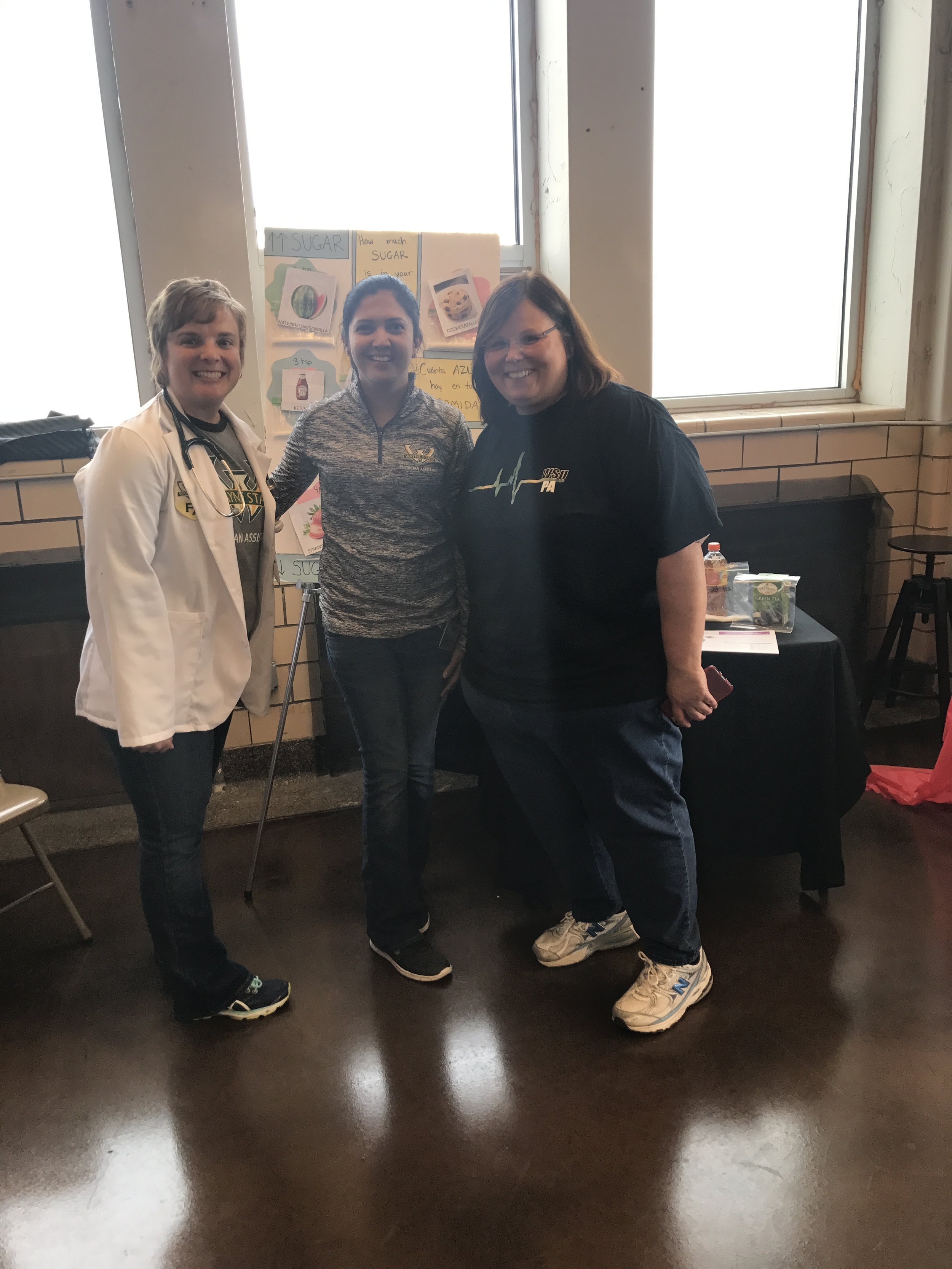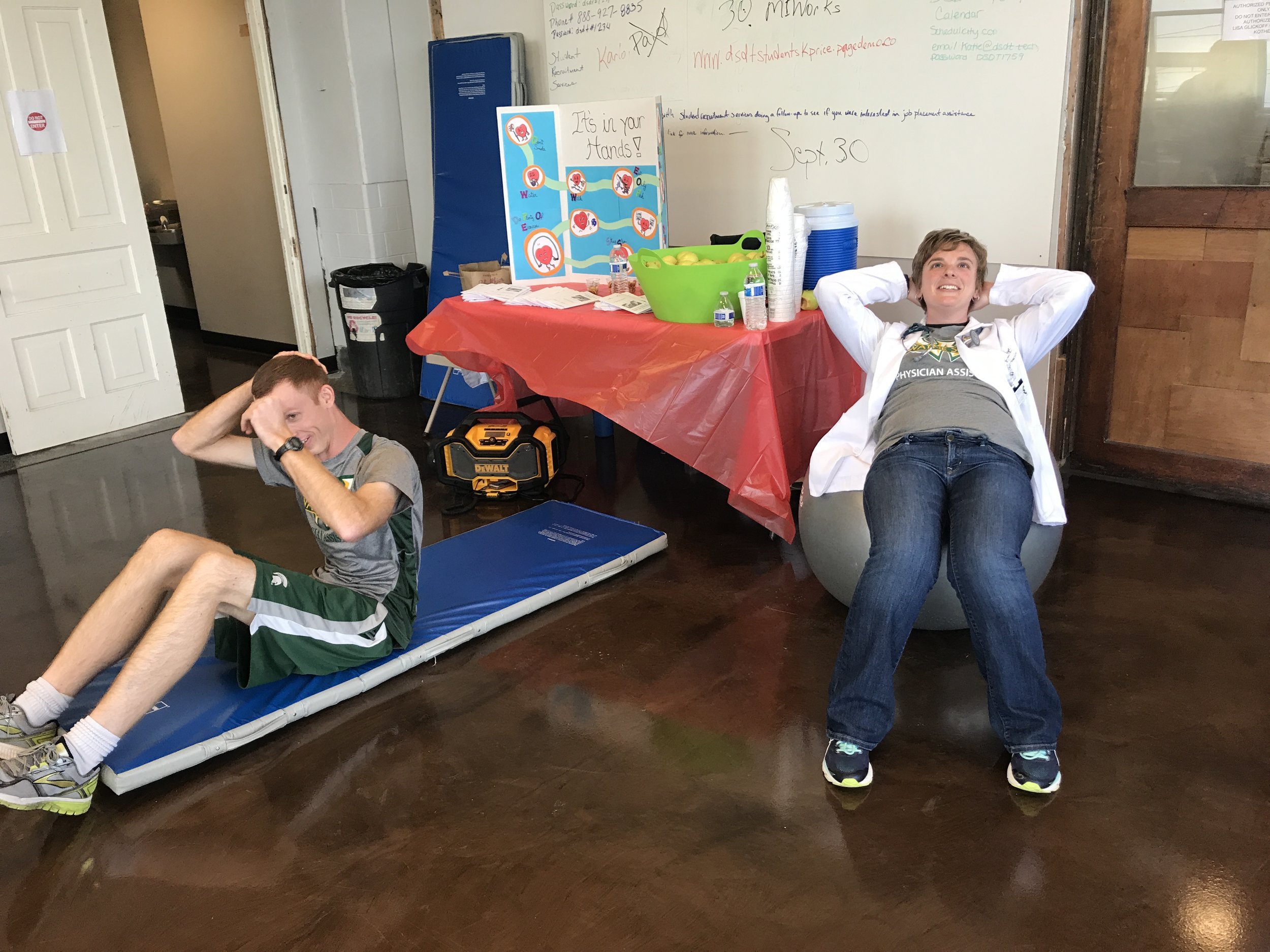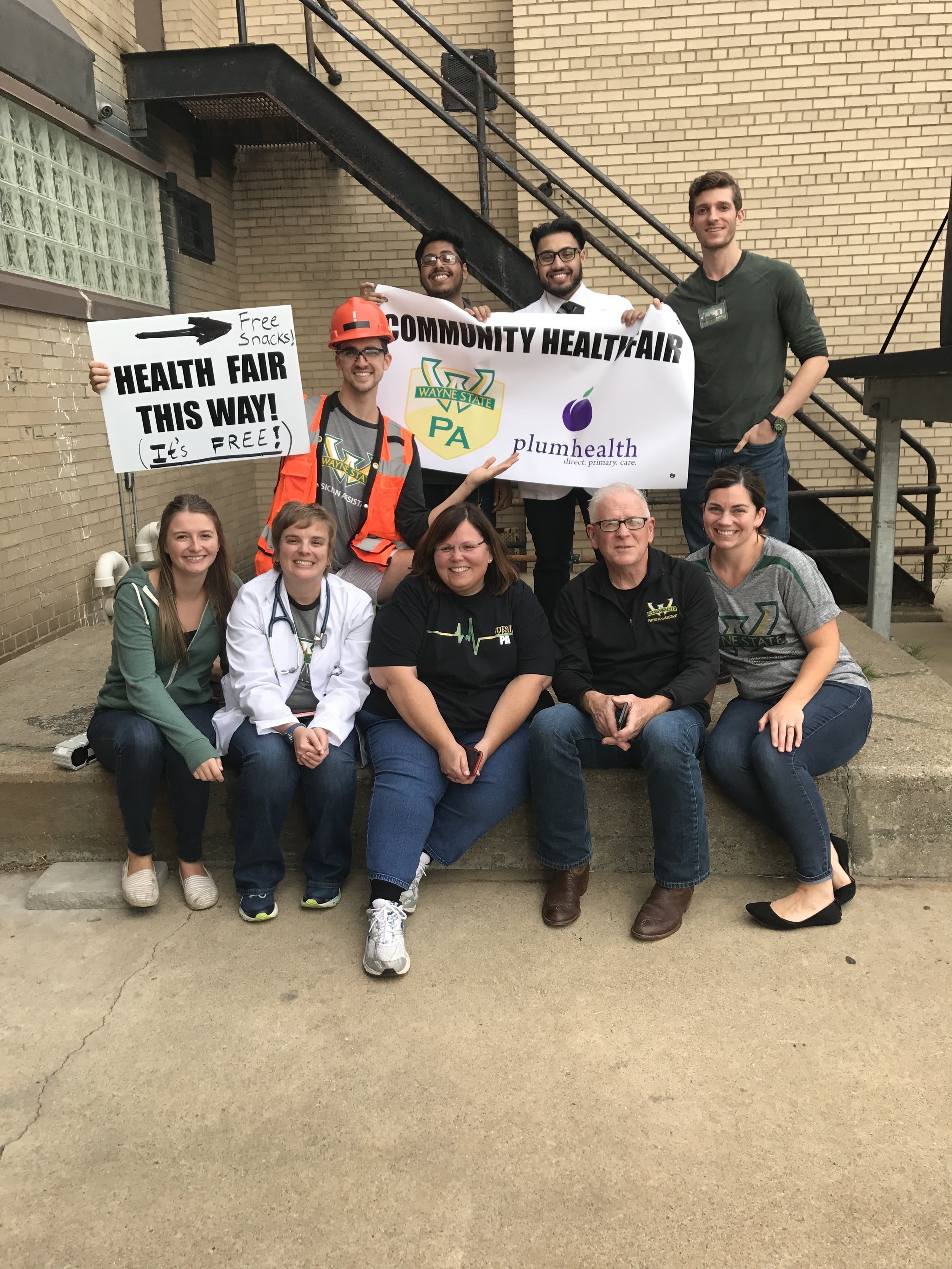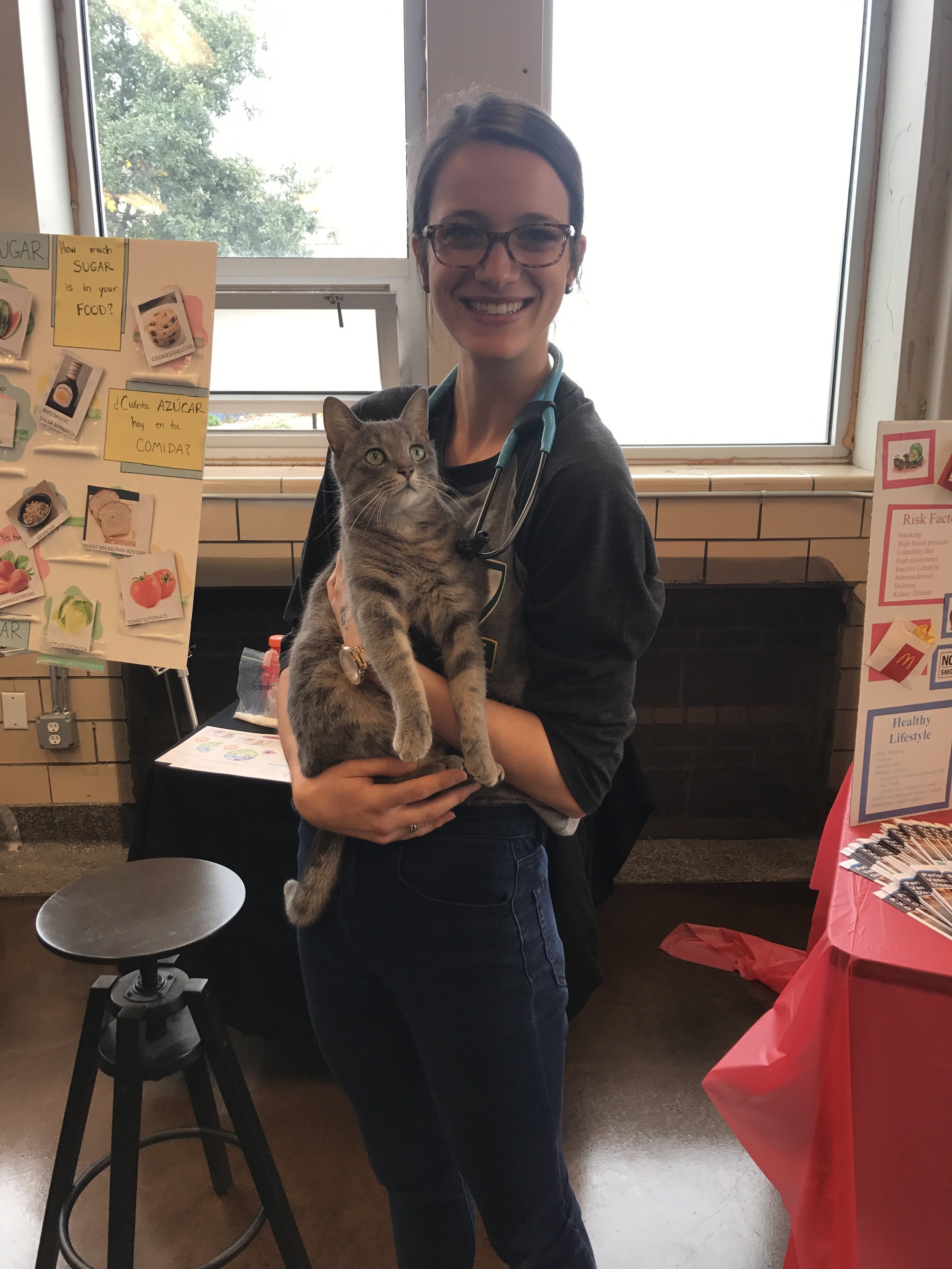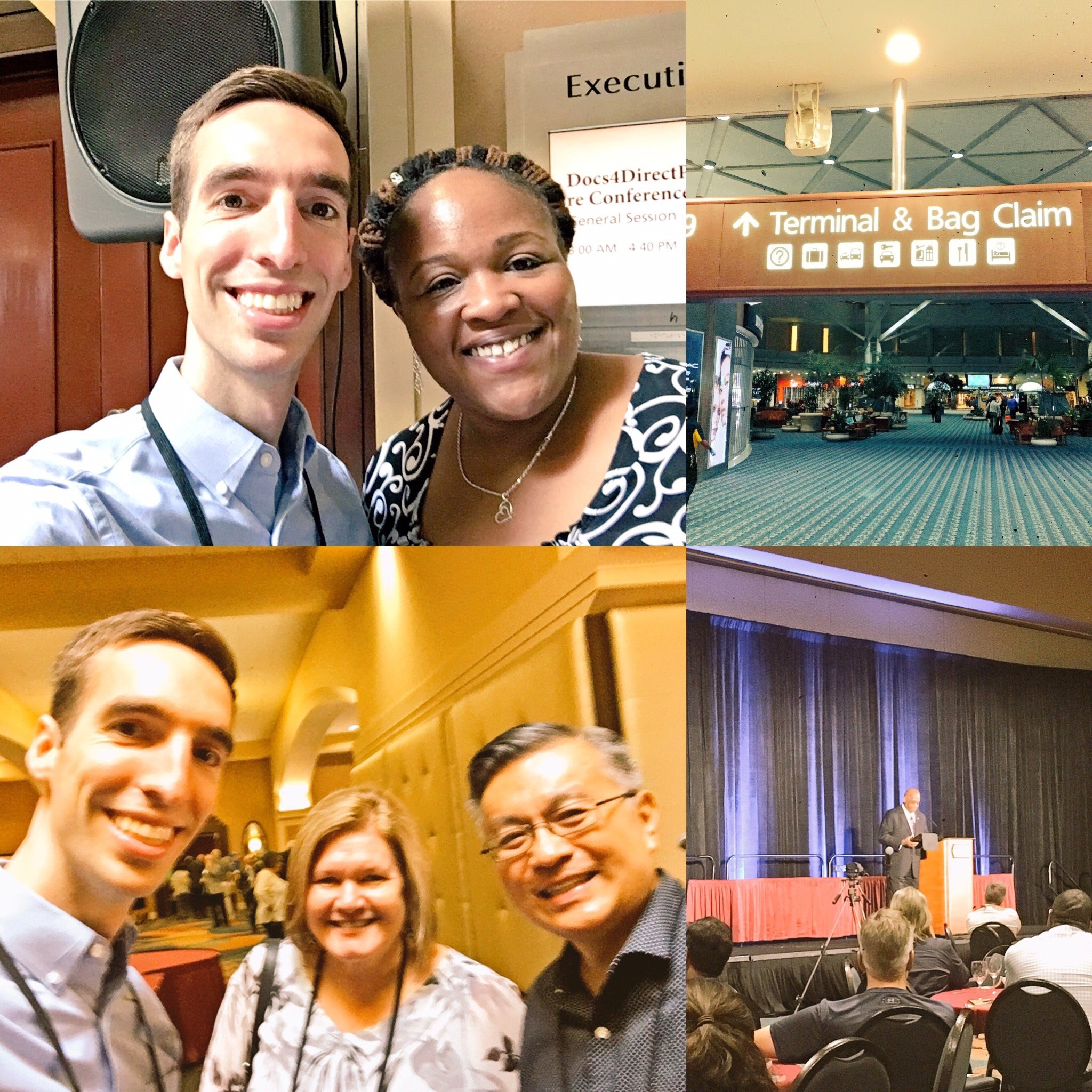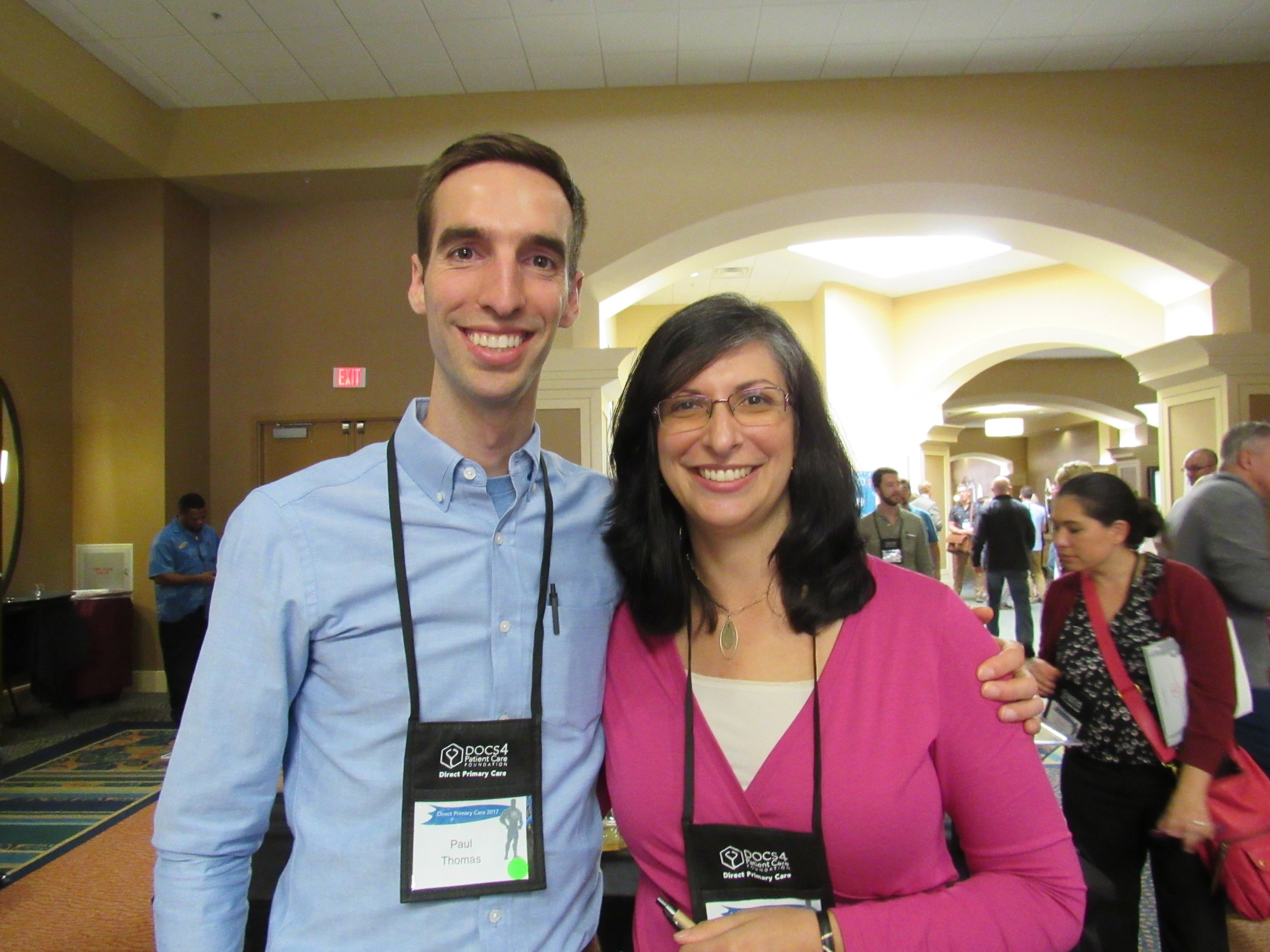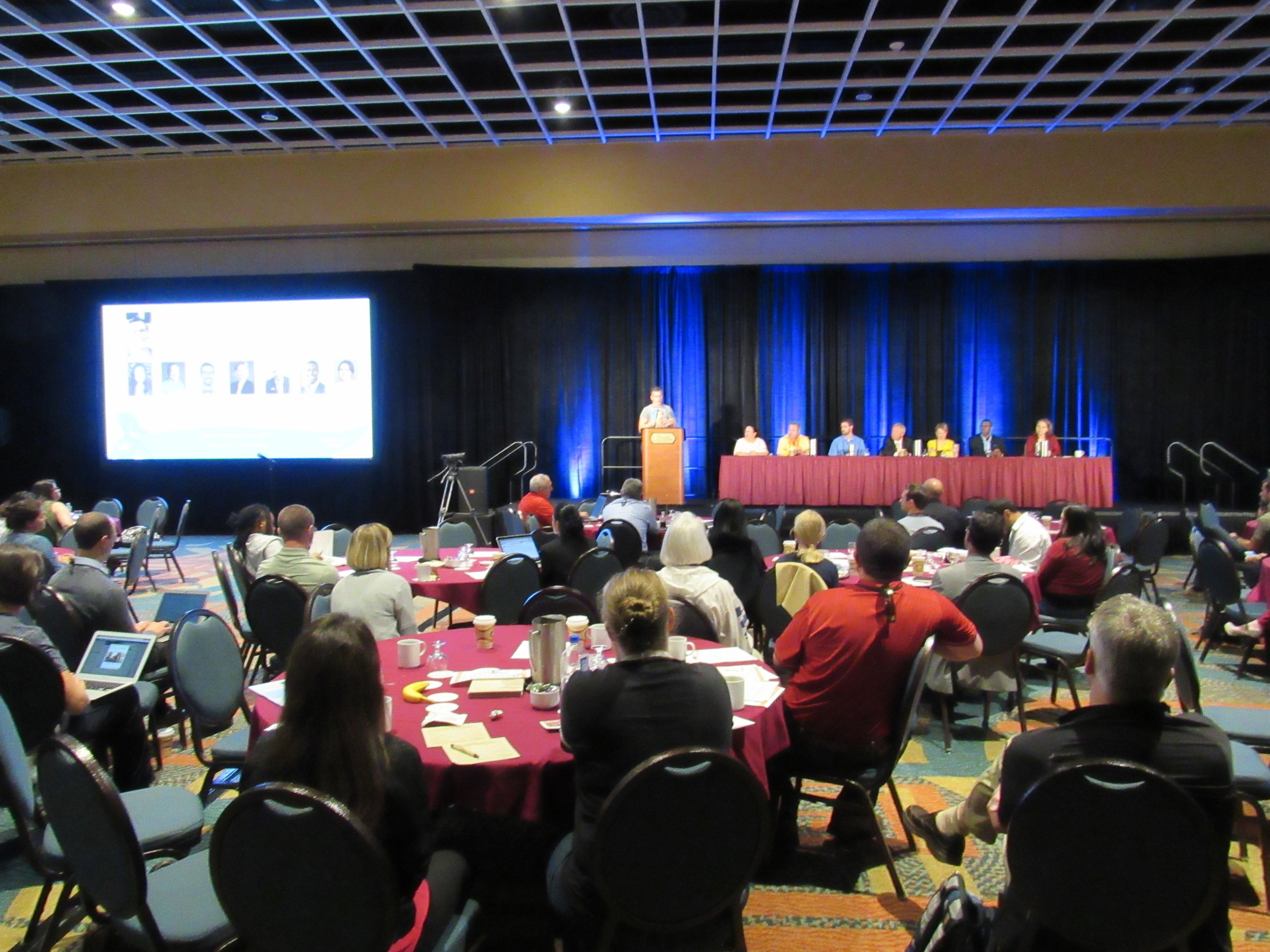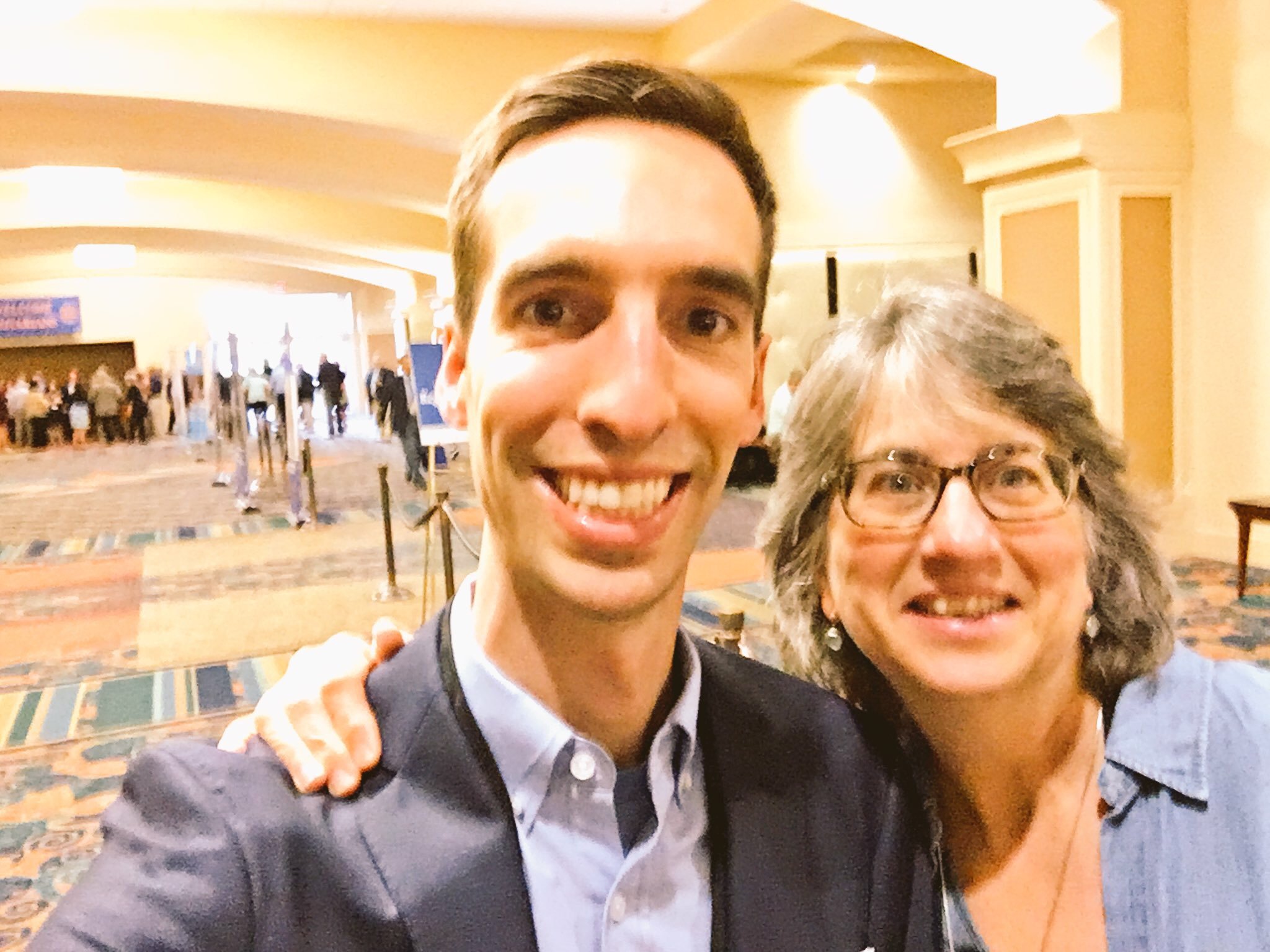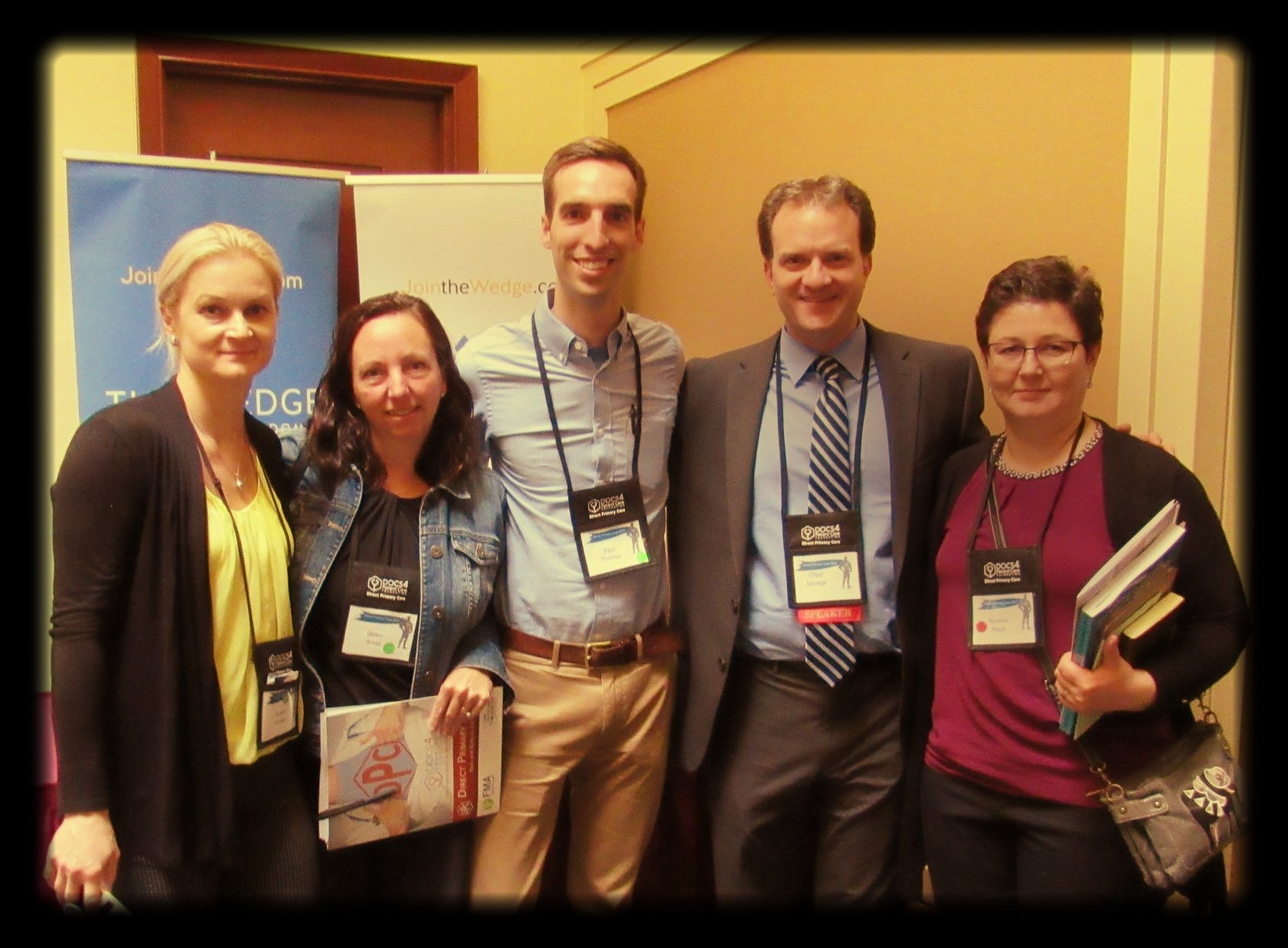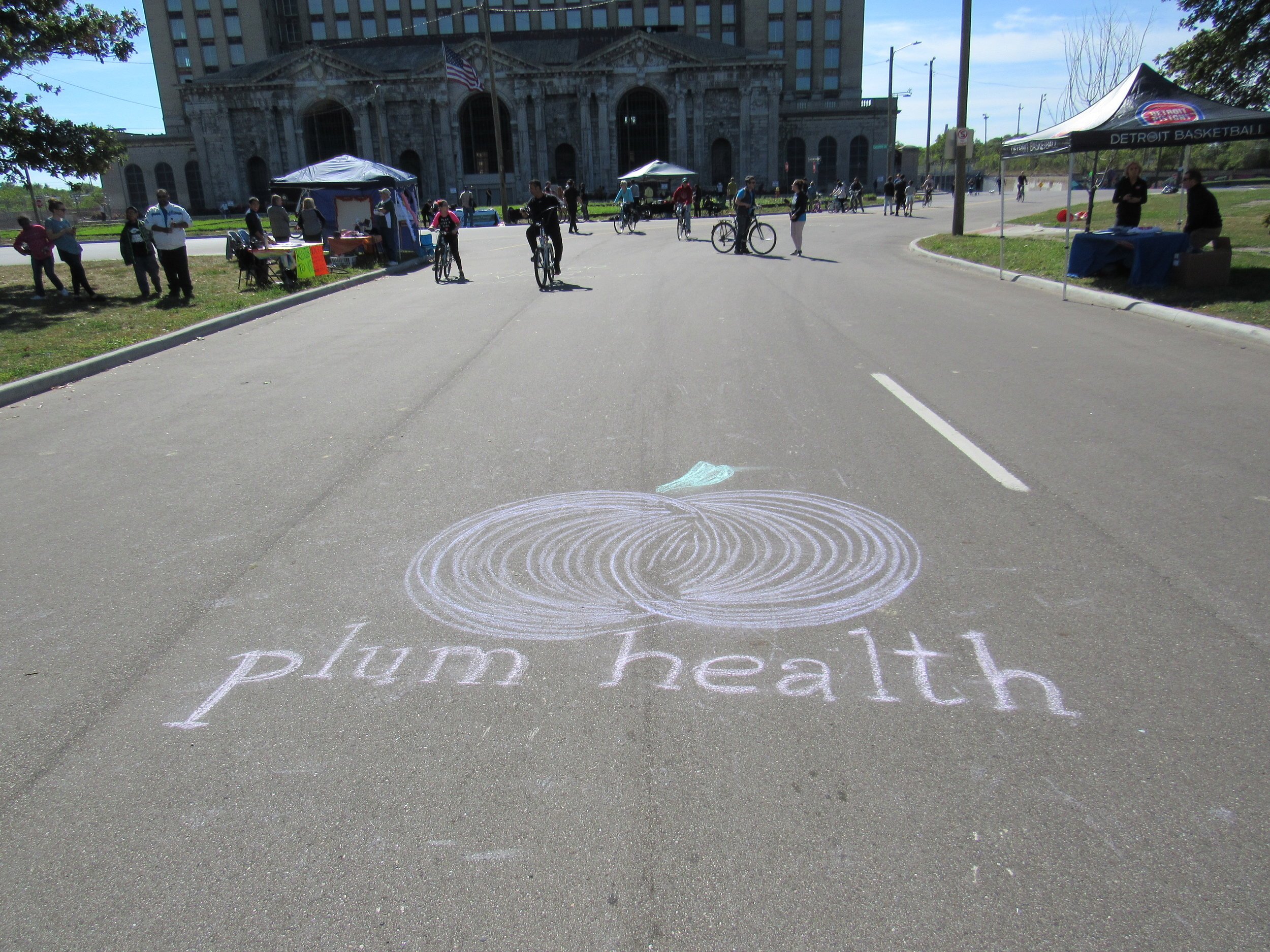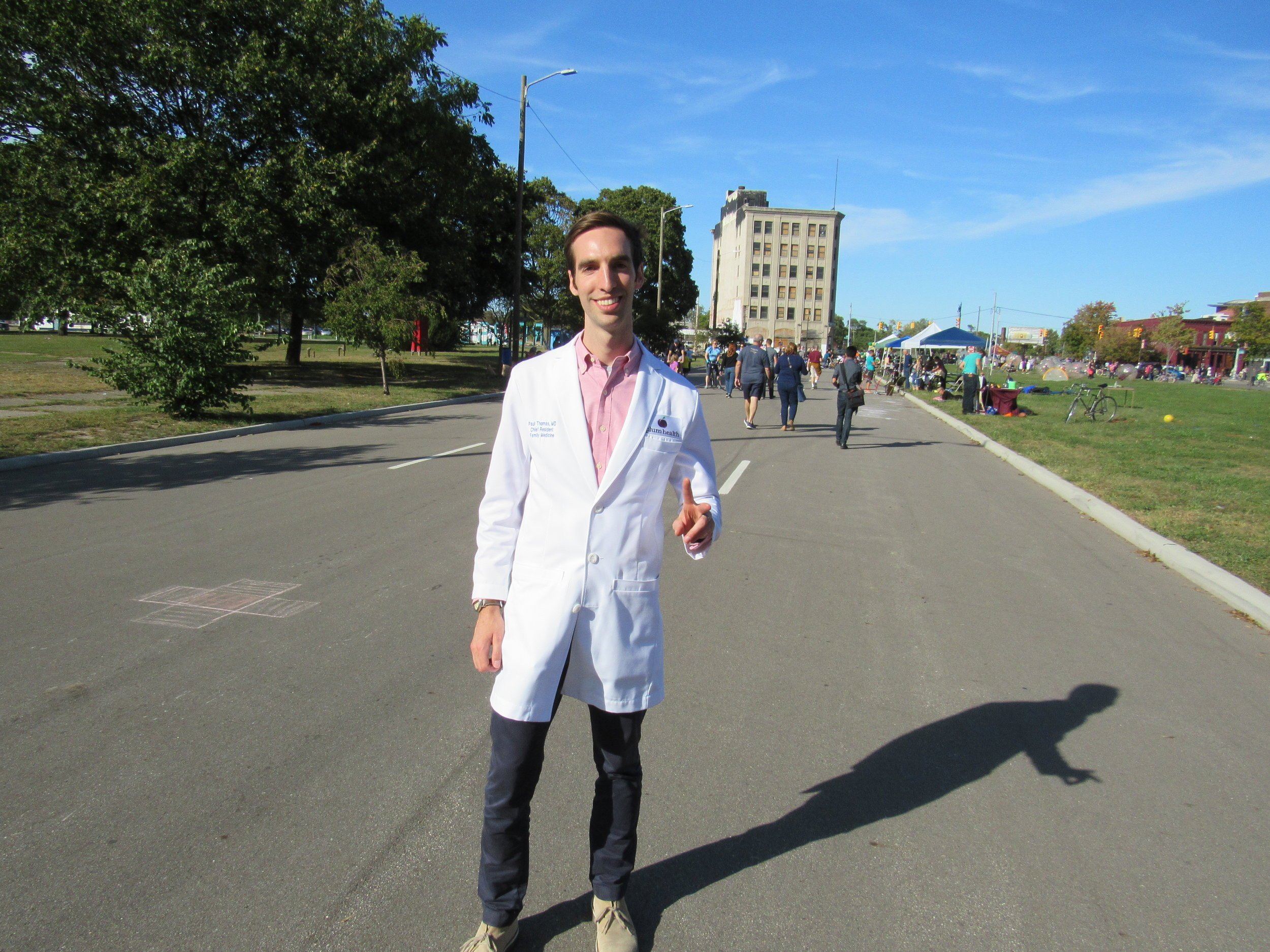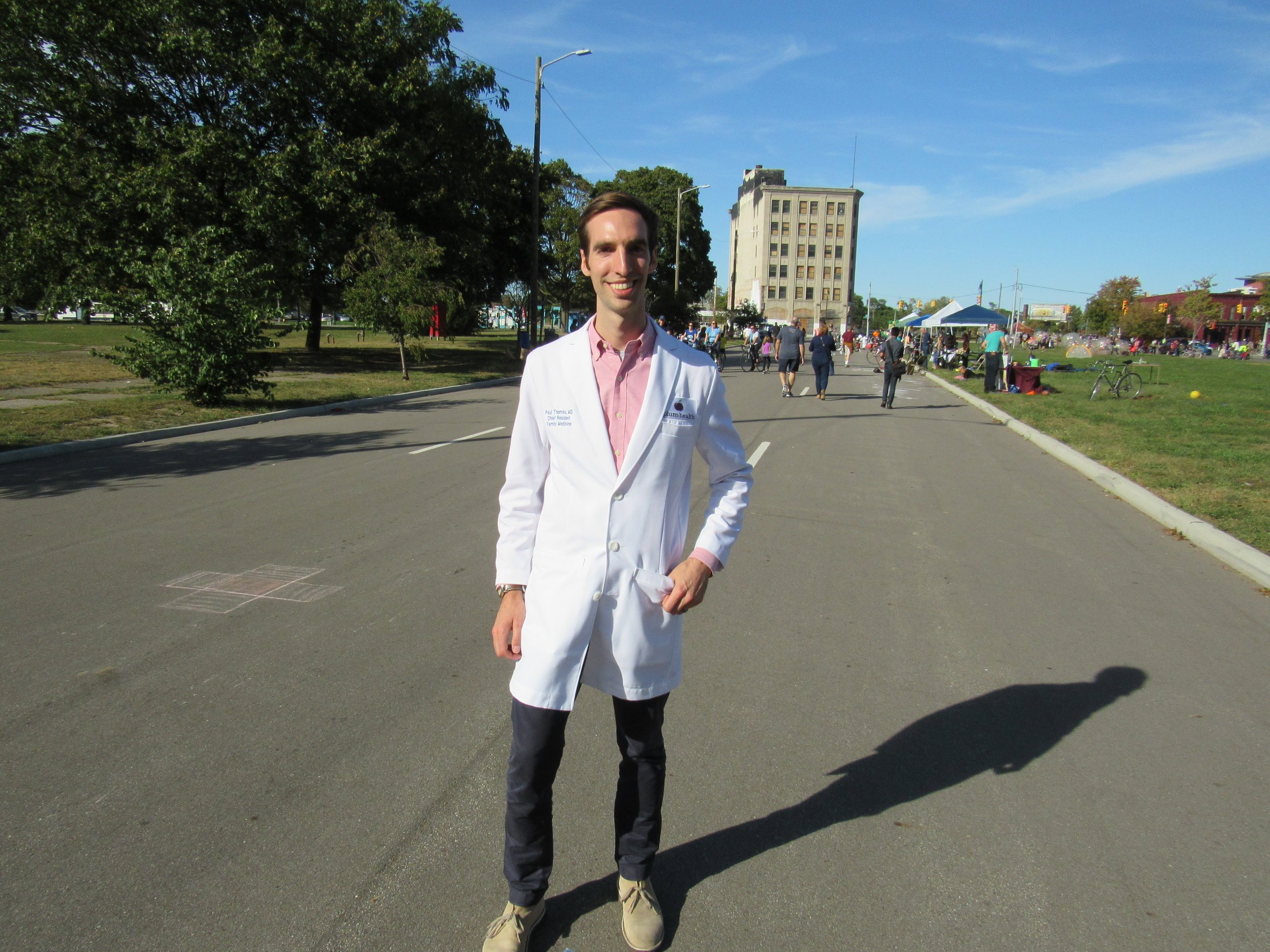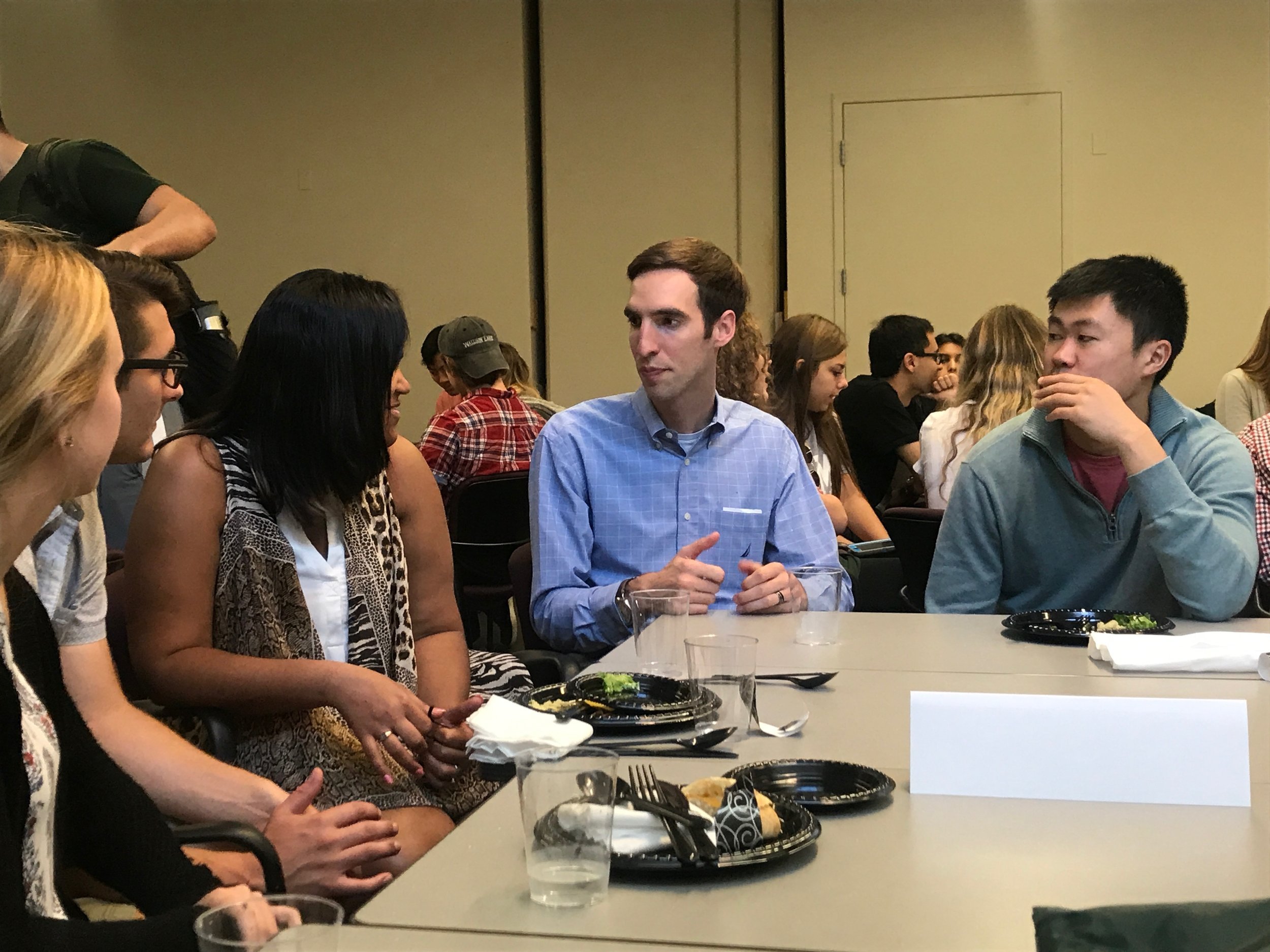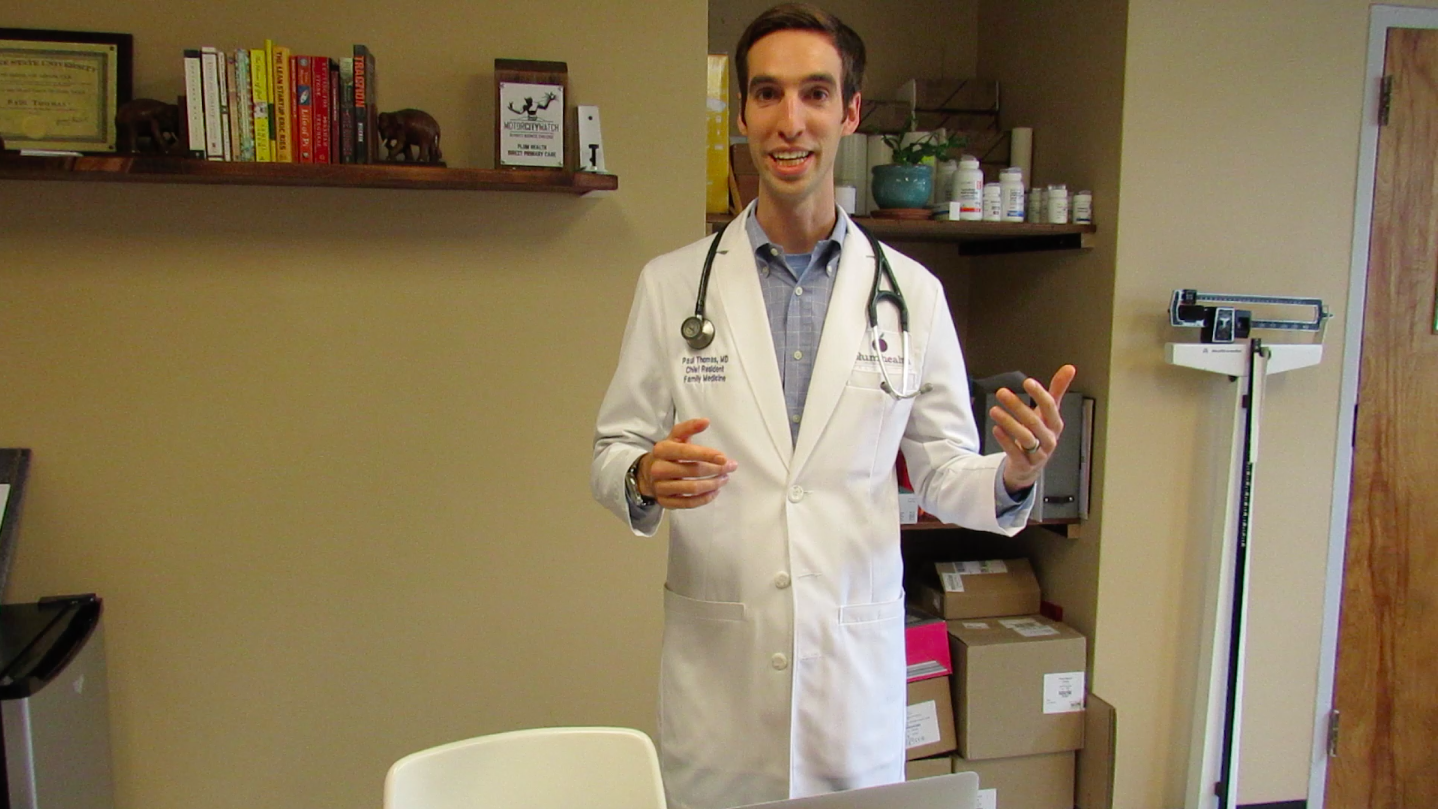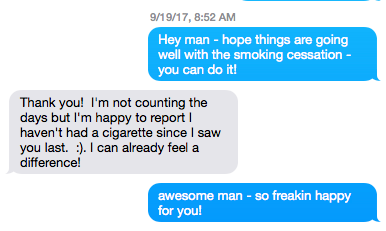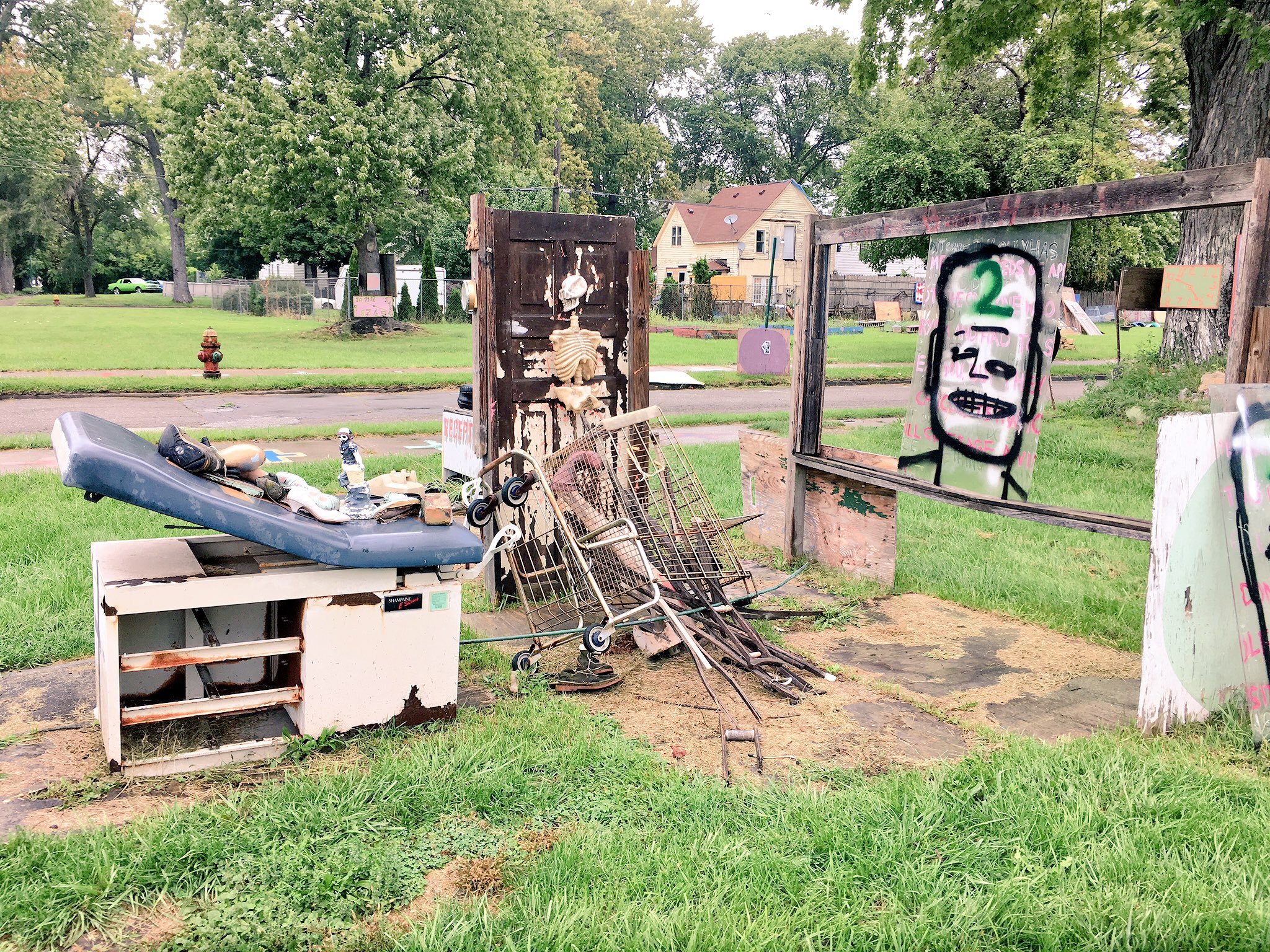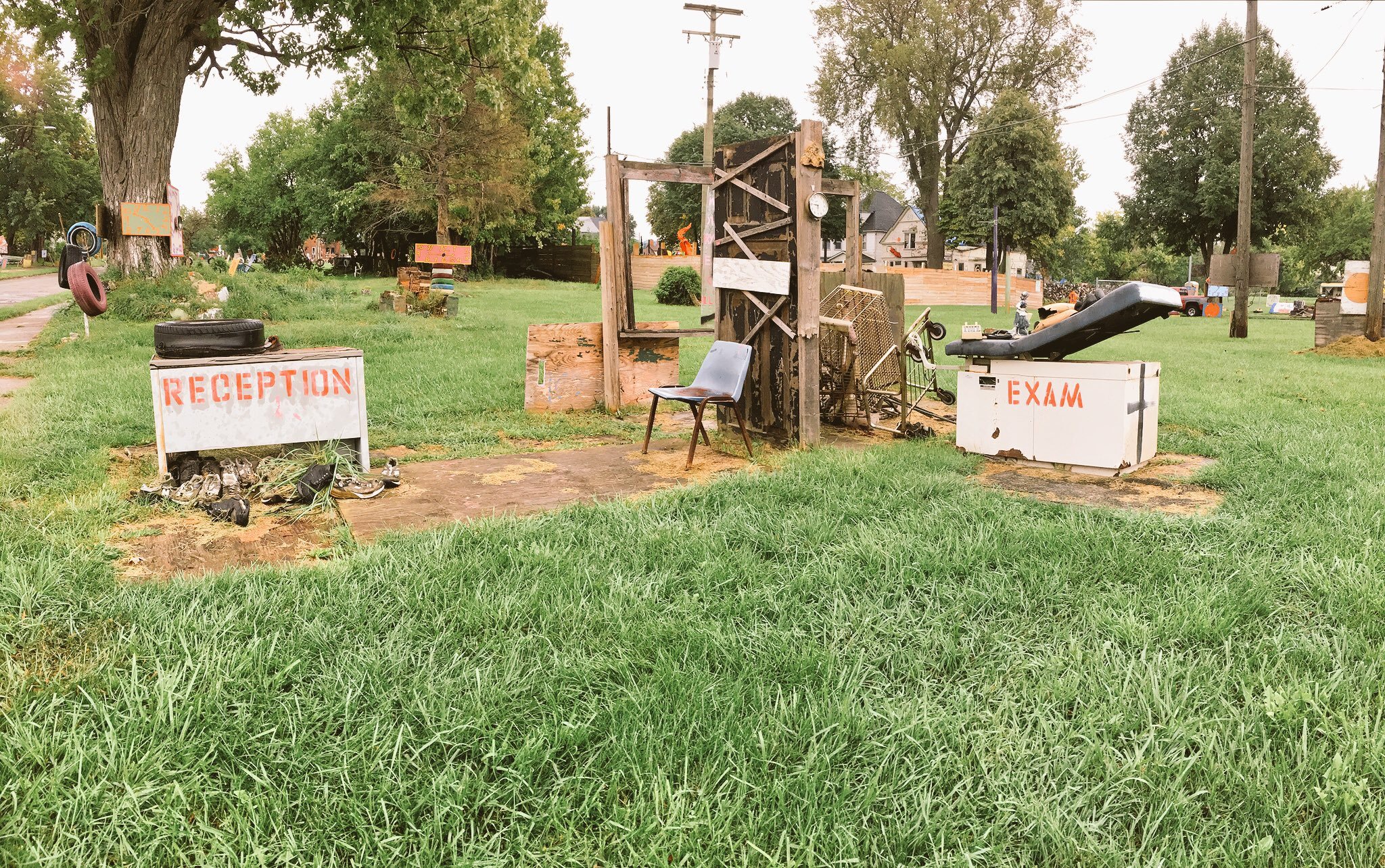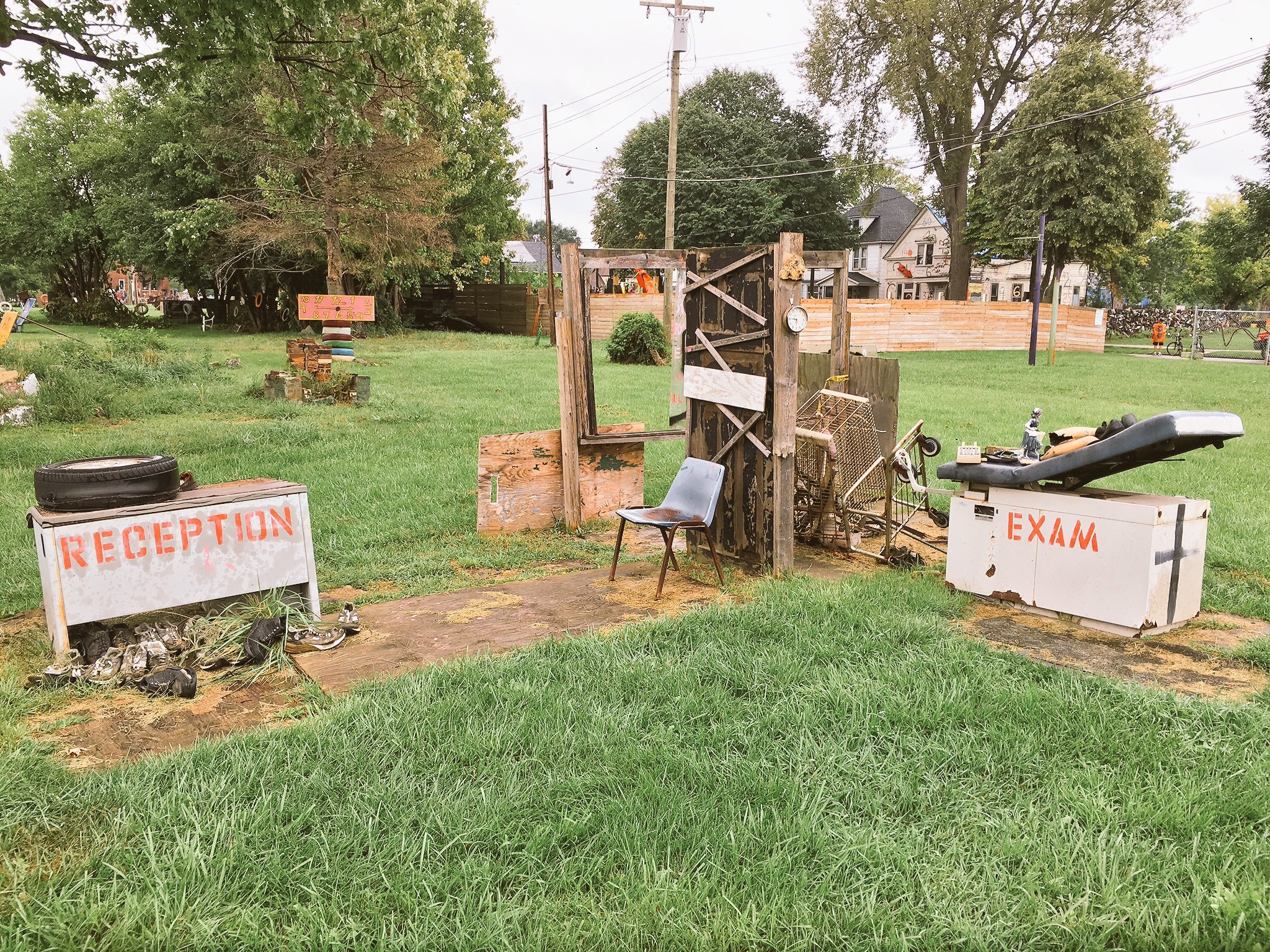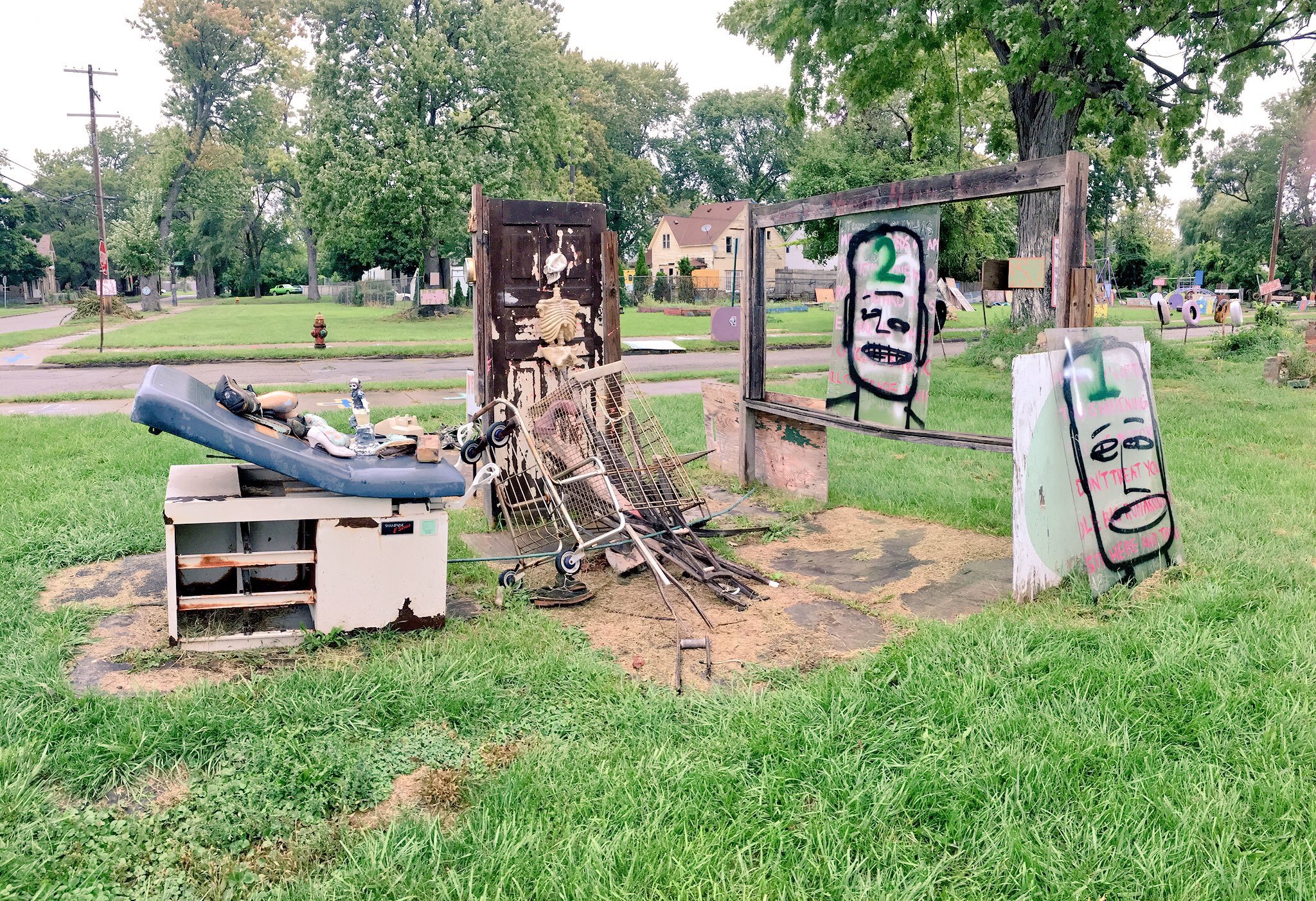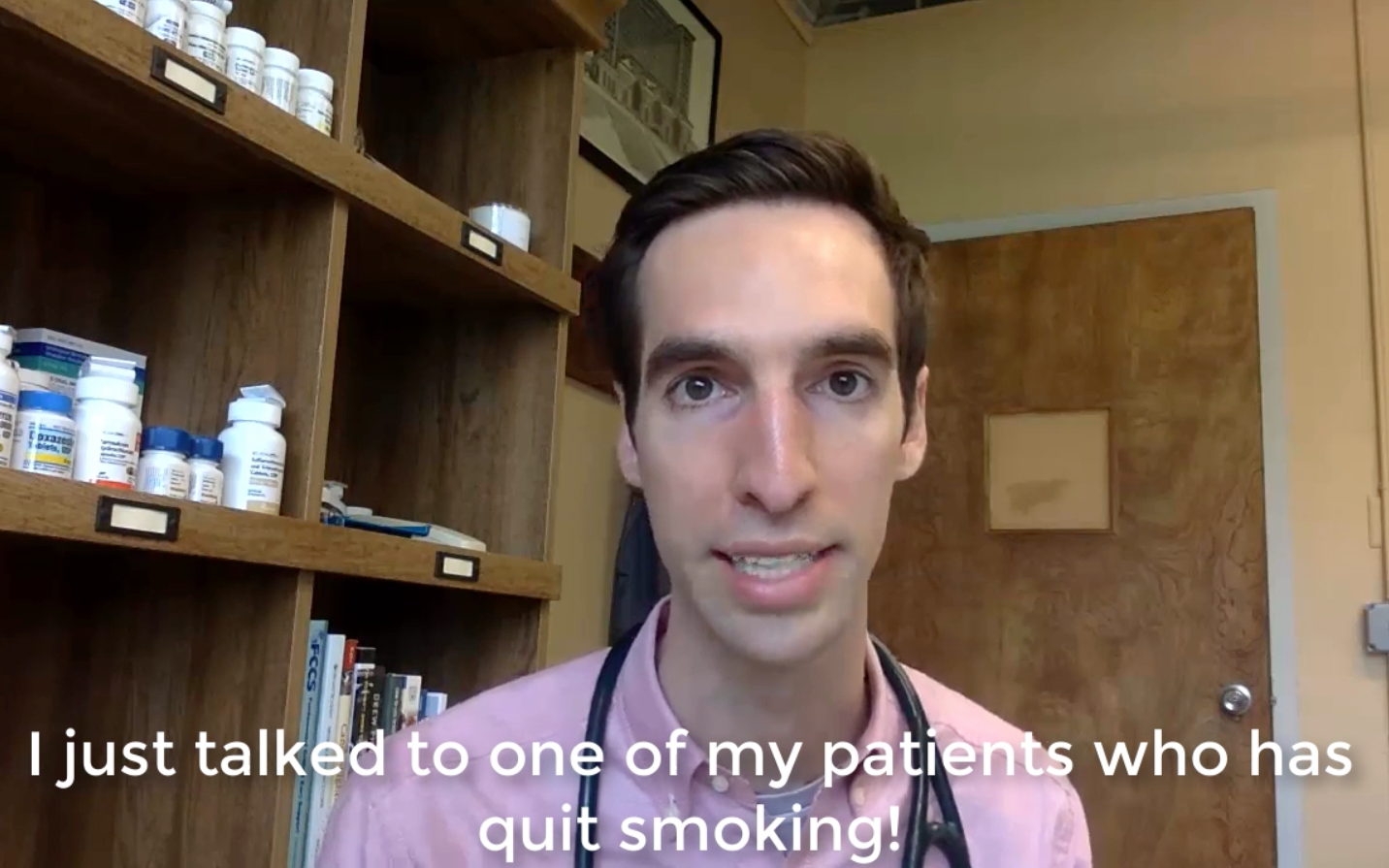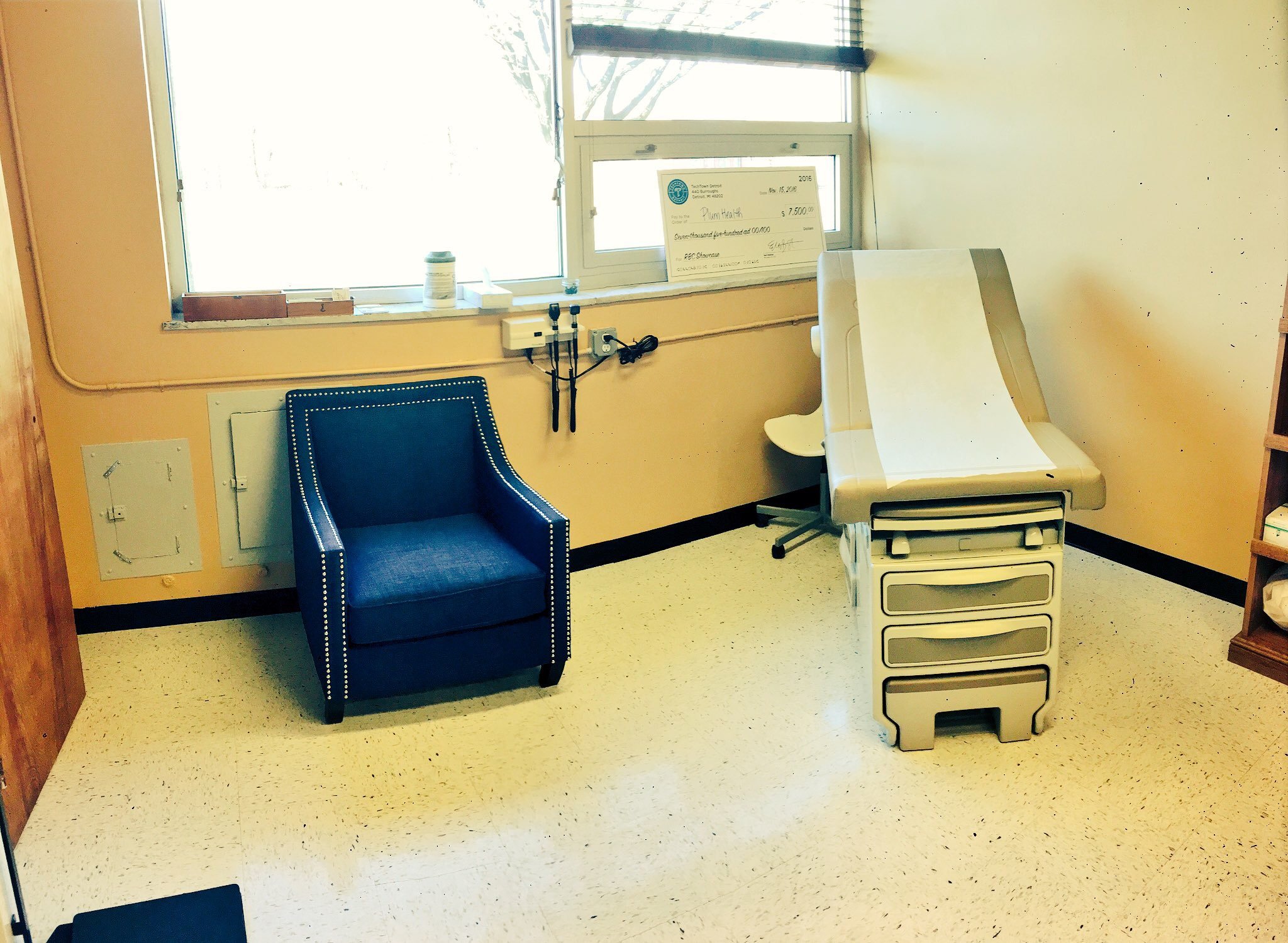Plum Health Blog
Health Fair with the Wayne State Physicians Assistants
Over the past 6 months I've been hosting and teaching Physician Assistant students from Wayne State University at the Plum Health office. I've also had a few residents rotate through and a few medical students visit the clinic, some from Wayne State and some from University of Michigan.
As Plum Health is the only Direct Primary Care practice in Detroit and Wayne County, and only one of less than ten in the State of Michigan, I find that we attract PA students, medical students, residents, doctors and allied health professionals who are thinking differently about health care and it's delivery, especially in the context of health equity and health disparities.
Anyways, I've loved having these students rotate through Plum Health! They bring a unique perspective, build genuine relationships with our members, and create an atmosphere of teaching and learning in the practice. This last point is important because I practice evidence-based medicine, and having a student helps to keep me up-to-date on the latest recommendations for evidence-based practice.
So last weekend, we were able to host a health fair at the Plum Health office. "We" being myself and the Physician Assistant students at Wayne State. Their energy was boundless and they put a great deal of time and effort in creating fun health-focused stations that taught participants about being healthier.
All in all, it was a successful day! We reached out to new people in the community, and gave away free medical care. We caught a case of diabetes that was unknown prior to the fair and helped folks gauge their blood pressure, blood sugar, and cholesterol levels (HDL, LDL, Total Cholesterol and Lipid Panel).
Below are photos from the event! Thanks for reading, and have a great day!
- Dr. Paul Thomas with Plum Health DPC in Detroit, Michigan
Don't Further Entrench an Already Broken System
Dear Congressional Representatives, Leaders in the AAFP, and all of those concerned with improving the health of Americans,
I’ve recently become aware of a part of the Alexander-Murray health reform bill that is concerning for the Direct Primary Care (DPC) movement, my practice and the patients that I care for in Southwest Detroit.
The bill includes a provision that mandates all High Deductible Health Plans cover an allotted primary care benefit. As written currently, the Alexander-Murray bill will cover “3 office visits per year” but many organizations, including the American Academy of Family Physicians (AAFP), are pushing to expand that.
While this may sound like a nice perk for patients, it only further traps patients and their primary care doctors in a broken system that undervalues primary care. It reinforces the notion that government and insurance companies must micromanage our dollars and decisions.
Forcing patients to pre-pay for a “primary care benefit” with no out-of-pocket costs will have a few detrimental effects. First, it will almost certainly increase the up-front costs of already skyrocketing health insurance plans. It will also dissuade patients from taking a proactive approach to managing their own health and health care, instead pushing them to be managed by an insurance plan or government programs. Finally, this pre-paid primary care benefit will discourage people from joining Direct Primary Care Practices, a promising practice model that is already achieving the quadruple aim: improving population health, increasing patient satisfaction, reducing per-capita health care spending, and improving physician and staff satisfaction while practicing medicine.
Furthermore, the Alexander-Murray bill fails to address the Health Savings Account (HSA) issue with regards to Direct Primary Care membership fees, something that my DPC doctor colleagues and I have been advocating for over the last few years.
My recommendation at this time would be to advocate for the Primary Care Enhancement Act (SB 1358), which would address the above HSA issue and not further entrench an already broken primary care delivery model.
In closing, Direct Primary Care is an innovative health care delivery model that has promise for achieving the quadruple aim on a nationwide basis. There are nearly 1,000 primary care doctors already practicing or on the cusp of engaging in this model. This is an opportunity to help us grow this DPC movement, to help us better serve our patients in this innovative way, and to potentially heal a broken primary care system in America. Help us reach our goal.
Thank you for your time and consideration,
- Dr. Paul Thomas, MD with Plum Health DPC in Detroit, Michigan
Direct Primary Care Conference 2017
Today I'm blogging from Orlando! The 2017 Direct Primary Care Nuts and Bolts 2.0 conference is ongoing! There are some heavy hitters in the room, and it's great to meet up with colleagues and learn best practices. Moreover, this is a call to action - it's inspiring being surrounded by 250 of the leaders in the Direct Primary Care movement!
These doctors have left a secure paycheck, given up on their employed gigs and pursued their dream of delivering the best care possible for their patients. I'm always inspired by their courage in the face of uncertainty and their dedication to lifting up the profession of primary care.
One of the most inspiring talks of this conference was given by Dr. Doug Farrago. He received a standing ovation after sharing his truth about why he's a Direct Primary Care doctor. He detailed his trajectory from being a battered employed doctor, threatened with termination if he questioned his marching orders, to leaving the system and practicing in a DPC model with fulfillment.
A big thanks to Dr. Lee Gross and the Docs 4 Patient Care team who have organized this conference. I'm looking forward to 'next time'!
- Dr. Paul with Plum Health in Detroit, Michigan
Family Doctor at the Open Streets Detroit Event
Last week I had the opportunity to be on the street level, talking with folks about health care at the Open Streets Detroit event! For those of you who don't know, Open Streets is a global movement. Cities across the country and across the world shut down their streets to cars and buses, and open them up to walkers, joggers, bikers, rollerbladers and community partners.
This year, I again participated as the "Ask the Doctor!" community partner. Last year I participated as well, but I wanted to make my area more interactive this year. So, I brought out a hockey net, a few sticks and I had people take a few shots on me. I've never been a great goalie, but it was a fun way to interact with folks in Corktown.
Our station was in front of the Michigan Central Station and I spoke with hundreds of people over the course of the day. There were thousands of participants, and the streets were filled with energy and vibrancy! I'm really looking forward to the 'next time,' but until then, enjoy some pictures of Open Streets Detroit 2017!
Mentoring Students at Wayne State University School of Medicine
Part of my mission, part of the "why" behind what I do, is to educate medical students and inspire them to choose a career in primary care specialties. Primary care doctors have the greatest impact on their communities, have the most tools at their disposal, and are most able to bend the cost curve in the health care ecosystem.
As a part of that mission, I spend a good amount of time interacting with medical students at Wayne State University School of Medicine (WSUSOM). This week, I took part in two different events at WSUSOM. The first was a mentoring session for first year students and the second was a mock interview session for the fourth year students.
For the first year students, it's an opportunity to get to know each other, learn from each other, and to be a resource. For the fourth year students, it's an opportunity to help them polish their interviewing skills as they prepare for the next step in their careers - residency!
This next generation of doctors will face significant changes and challenges in the health care system - from greater automation, to precision medicine, to even Artificial Intelligence. I hope that I can be a part of the foundation along with their formal education at WSUSOM that sets them on the right path to success in medicine.
Thanks for reading, and have a beautiful day,
- Dr. Paul Thomas with Plum Health DPC
Drew and Mike on Health Care
I was listening to the Drew and Mike Podcast from September 26th, and Drew and his Crew were talking about how health insurance costs are outrageous! Early in the episode (time 1:16), one of the co-hosts admonished Drew Lane, "you can barely afford insurance for yourself!" This set off a conversation about the cost of health insurance, the little coverage that it affords and Drew Lane's displeasure with the overall system.
Drew's first reaction (minute 1:28), "I don't know how people my age, in my position," not yet covered by Medicare, "and self-employed... ...that's a big chunk of money." He goes on to say that his insurance costs roughly $18,000 - 19,000/year and if you were to make $50,000/year, it would cost roughly 30% of your gross income.
Because of this extremely high cost, Drew and his co-hosts speculate that some folks just choose to "roll the dice," i.e. go without insurance and hope for the best. They do mention that those folks earning less may be eligible for subsidies or tax breaks from the Federal Government. But, still - a huge chunk of our income is going directly to health insurance and health insurance companies. Even worse, the quality and service levels can be low because care is dictated by third party payers like insurance companies or the government.
Because Drew's dog recently had eye surgery, Drew was talking about how veterinarians discuss charges before providing care, and how that concept should be applied to the human medical field. "Wouldn't that be something?" Drew asks rhetorically.
Well, it doesn't have to be a rhetorical question. It doesn't have to be a pipe dream. I'm here to tell you that Direct Primary Care doctors make their prices clear and transparent, and it may revolutionize primary care!
Here's how it works: Direct Primary Care (DPC) is a membership model for health care. Prices vary between different DPC practices, but our prices at Plum Health are $10/month for kids, $49/month for young adults 18 - 40, $69/month for adults 40 - 65, and $89/month for older adults 65 and up.
With that membership, patients or members can come in and see the doctor any time! They can also call, text or email the doctor anytime.
Further, patients or members can have access to wholesale medications, at-cost labs, and at-cost imaging services. So far we've saved our members tens of thousands of dollars on these ancillary services.
I shot a video explaining these concepts in more detail, here:
Thanks so much for reading and watching. I hope that I've opened your eyes to the possibility of better health care services with a transparent pricing structure. Finally, have a wonderful day!
- Dr. Paul Thomas with Plum Health in Detroit, MI
Motivation to Quit Smoking
We are all on a journey, and at Plum Health we like to guide people to better lifestyle choices. For example, if you're trying to quit smoking, we can help you by reminding you of your commitment.
How do we do this? It's really simple, actually. We just send you a text message! Here's a real life example, sent to one of our members last week:
These are real text messages, and this is a real patient. Their name has been removed for patient privacy sake, but you get the idea. When you're a part of Plum Health, you are someone who I think about and that I care about and that I want to help. Sincerely, whenever I think about this person, I send them a text and ask - "how's it going?"
And, there is a great deal of evidence to support these types of interventions. There is a systemic review/meta analysis on Text Messaging-Based Interventions for Smoking Cessation in the Journal of Medical Internet Research that came to this conclusion: "The current meta-analytic review provides unequivocal support for the efficacy of text messaging interventions for smoking abstinence."
That's why I send messages like this:
Further, texting patients about their health can have different applications. For example, a text message to a patient regarding their exercise patterns or medication adherence can help them to achieve their goals.
So, what's your goal? How do you want to become healthier? Can I help you get there?
Thanks for reading, and have a great day!
- Dr. Paul with Plum Health
A Golden Apple in My Office
This week, I was taking care of a family of 6 in my office! There was a lot of joyful movement and one of the toddlers grabbed an item from its resting place- it's an Apple, a Golden Apple, that I keep on my shelf and it's a reminder of my mission, vision, and values.
When I was in medical school at Wayne State University, I was awarded with the Golden Apple Student Award for having an understanding of the Art of Medicine as displayed by the care and understanding of patients. It was a tremendous honor, and it's something that I carry with me, as well as something that I want to give to my patients and reflect in my practice.
Often, my patients will ask me about the best course of action going forward, and sometimes the answer isn't always clear. You see, there's the science of medicine, the reproducible, empiric evidence with its best practices and treatment recommendations. These guidelines are important to know and important to follow in most cases. But, on the other side, is the Art of Medicine, and because every one is unique, an individual, with unique medical concerns, treatment choices aren't always clearly defined.
When difficult choices need to be made, I often ask my patients which course of action they'd like to pursue. This may be a unique aspect to my practice, but I know that it's important to engage in shared decision-making with the people that I care for. When decisions are made together, we can be on the same page about treatment, compliance to the plan is higher, and people feel like they have more control over the condition and situation.
Thanks so much for reading and have a wonderful day,
- Dr. Paul with Plum Health
Why It's Important to Have a Family Medicine Doctor in Detroit
Today I had the pleasure of speaking with Keith White of the Cancer Awareness Resource Network. We talked over the phone about his organization, the work we're doing with Plum Health, and the potential that we have to serve folks with cancer in Detroit and beyond.
Keith has had an amazing and inspiring journey. To read about him, check out what he wrote on his "about us"page. One thing Keith realized, though, is that even if folks have great health insurance, they may still have really high co-pays for doctor's visits and medications. He reached out to see what Plum Health could offer those with cancer and those in remission in his network.
Simply put, we can offer the best primary care experience in Detroit. What that means is that you have a Family Medicine Doctor or a Primary Care Doctor who is truly your advocate. I take my role seriously, and I will advocate for your health and wellbeing, your family and your finances while you confront cancer. How do we do this?
First, I focus on you and take a wholistic approach to your care. I have more time to spend with you, to get to know you and understand where you're coming from, what you're dealing with, and where you want to go with your life and your health. As your family doc, I will make sure that you're taking the right medications, that you are getting the right screening tests, and keeping up with treatment.
Second, I take care of folks in the context of their families and their communities. If there are emotional or familial stressors, we can talk about those and look for solutions together.
Third, I watch out for the financial wellbeing of my patients. This means that I make my prices clear and understandable, I don't charge co-pays for visits, and I give my members medications at wholesale prices.
Cancer and its treatment are hard enough, so when facing these difficulties, you want a primary care doctor who knows you well and who can advocate on your behalf.
Thanks for reading, and have a wonderful day,
Dr. Paul Thomas with Plum Health
The current look of our Plum Health Direct Primary Care office in Detroit, Michigan
Hatch Detroit 2017 Application
Today, we submitted our application for Hatch Detroit 2017. Our company is called Plum Health DPC and we deliver affordable, accessible healthcare services in Detroit. We offer street level, neighborhood-based medicine in a city with very few primary care medical resources. There are roughly 50 - 100 primary care doctors in a city of 683,000 people, or roughly 1 doctor for every 6,000 - 12,000 Detroit residents.
This lack of access to primary care has a net negative effect on the city. Medical problems go untreated, worsening the burden of disease in the city for all maladies from diabetes, to high blood pressure, and cancer. Residents who cannot get in to see Detroit-based doctors must drive to the suburbs for services, causing inconvenience and costing the city in terms of tax revenue.
The Hatch Detroit 2017 grant is an opportunity for $50,000 in cash, along with support services ranging from legal to accounting, and beyond. With this $50,000, we would be able to hire a second doctor as soon as possible. This has an immediate benefit for the community in that we can get another doctor in Detroit to provide holistic and comprehensive primary care services.
We believe that primary care services are invaluable for a community, especially in a City like Detroit. The type and amount of value that we give to the community will exceed the initial investment from this grant competition, should we be so fortunate as to be considered for the prize.
In effect, this $50,000 yields immediate impact. First, the Detroit community gets a desperately-needed primary care doctor in a street-level, community-facing medical practice. More screening tests are ordered, more colon, lung, prostate and breast cancer cases are caught early. More diabetic and hypertensive patients have their blood sugar and blood pressures controlled, resulting in lower heart attack and stroke rates in the years ahead.
I know it's not super sexy! But it is vital for a functioning city and truly revitalized neighborhoods. In keeping with the Mayor's vision of 20 minute neighborhoods, having a neighborhood family medicine doctor can only serve to strengthen Detroit's neighborhoods and the future of Detroit in general.
Thank you for reading and for watching,
Dr. Paul Thomas with Plum Health in Detroit, Michigan
Plum Health July Update
The last 3 weeks have been a whirlwind! About 3 weeks ago, we were featured on Channel 4 news in Detroit, aka WDIV. Within the week, we had roughly 2,000 unique page views, 100 phone calls, 200 emails, and 30 - 35 new sign ups for our service. It was an overwhelmingly positive response.
Our focus has been to take really good care of the new folks who signed up while maintaining our excellent standard of care for the people already signed up for our service. Our focus is on quality, not quantity.
Also, I attended the AAFP's Direct Primary Care Summit in Washington DC and met with some legislators and legislative assistants to discuss DPC and what we do at Plum Health in Detroit. This was a great trip and a great chance to talk with legislators about what we do at Plum Health and in the Direct Primary Care model, but also talk with our DPC colleagues.
Furthermore, we continue to save our members significant amounts of money on their medications, labs and imaging. We had a person sign up who was charged $100 for 10 tablets of valacyclovir (Valatrex). This medication is used to treat genital herpes. At our clinic, it costs about $2.35 for 10 tablets because it costs $0.23/pill.
Thanks for reading and have a great day,
Dr. Paul Thomas with Plum Health DPC in Detroit, Michigan
Plum Health featured in Good Life Detroit
This week, Plum Health DPC was featured on the blog Good Life Detroit. Jennifer is the creative spirit behind Good Life Detroit, and she did a fantastic job writing about our clinic and Direct Primary Care in general.
I really appreciated her perspective as a mother - she notes in the article that she has 5 children! - and that she paid $125 for a 20 minute doctor's visit for one of her children. Contrast that with our clinic, her child could have been seen for a full year for $120, with as many visits as needed included in that price.
This is how we make our primary care services valuable for the community that we serve. If you were not aware, Detroit is a large, low-income population. We recognize this as a fact, and have adjusted our pricing to be accommodating for the community that we serve.
Another great point that she brought up in the article is the frustration that people can experience when trying to reach their doctor! Sometimes reaching the doctor can be like pulling teeth. She puts it more eloquently, here:
"Another great benefit of Plum Health Direct Primary Care is patients have the opportunity to speak directly to Dr. Paul without the hassle of long wait times and call screenings. Instead of having to go through a series of steps just to talk to their doctor, patients can call, text, or email Dr. Paul directly. In some cases, some doctors require you to leave a message with the office staff for a callback.
"Most of the time the office staff member screen’s the doctor’s calls and you have to tell the staff member exactly what it is you need or what your question is. Then you wait for the doctor to call you back, which can be anywhere from the same day or one to two days later, all depending on the doctor’s schedule.
"Members of Plum Health have Dr. Paul’s cell phone number and email address. They can reach him anytime they need to ask a question in regards to their health."
There are several other great points that she makes throughout the article. I was really impressed at her depth and thoroughness. I also appreciate her helping to get the word out about affordable, accessible health care in #Detroit. We're trying to serve as many folks who need this type of care, and articles like these help us to reach communities outside of our circle of influence.
Thanks for reading and have a wonderful day,
Dr. Paul Thomas with Plum Health Direct Primary Care
Plum Health Direct Primary Care is in Detroit, Michigan. We practice old-fashioned family medicine, but we use technology to make ourselves more accessible to our patients when they need us! I love this graphic that Jennifer at Good Life Detroit created for us!
I also really liked this graphic that Good Life Detroit made about our pricing tiers at Plum Health DPC - really easy to read and understand!
Plum Health Advocating for Direct Primary Care in Washington DC
This week we're in Washington DC, advocating for affordable, accessible healthcare services on Capitol Hill. We're meeting with the offices of Senator Stabenow, Senator Peters, Congresswoman Lawrence, and Congressman Conyers. This is one of those moments where I feel like the mission that I'm on is bigger than the community that I live in and bigger than my city and my state. Access to affordable health care is a National concern and our representatives and their office personnel have given us open ears.
On Thursday morning, I boarded a plane to DC. That day, I met up with several of my Direct Primary Care colleagues at the DPC Summit 2017. We took a bus from our hotel in Crystal City to the Dirksen Building on Capitol Hill. We received instructions from our advisors about how to talk to our legislators: be authentic and tell your story.
Here's the video I shot in the Detroit Metro Airport prior to taking off:
After our briefing, I was able to meet up with legislative assistants from the offices of Senator Stabenow, Senator Peters, Congressman Conyers, and Congresswoman Lawrence. Here's a video I shot inside the atrium of the Hart Senate Office Building:
The Hart Senate Office Building houses the offices of Senator Peters and Senator Stabenow. I was bouncing between this building and the Rayburn House Office Building, where Congresswoman Lawrence and Congressman Conyers have their offices. Here's a video I shot just outside of the Rayburn House Office Building:
Thanks for reading and watching, and have a great day,
- Dr. Paul Thomas with Plum Health DPC in Detroit, Michigan
Local Detroit Doctor on Channel 4 News WDIV
This week, Plum Health Direct Primary Care was featured on Channel 4 News, station WDIV, in Detroit, Michigan. Plum Health was billed as a service that is saving people "thousands of dollars". While we are able to save folks money on their health care needs, the reason why we do this goes much deeper.
Our mission is to provide affordable, accessible health care in Detroit and beyond. We build relationships with our members and make ourselves available whenever our patients are in need. We make the prices for all of our services transparent so that you can understand both the cost and the value. Here's what WDIV wrote on their webpage:
DETROIT - Dr. Paul Thomas, who runs the Plum Health Clinic in Detroit, might just have a plan to revolutionize healthcare -- it's called Direct Care.
Thomas said everyone needs health insurance in case of catastrophic illness or injury, but he quickly added, "Basic healthcare outside a hospital is actually low cost."
When was the last time "low cost" and "healthcare" showed up in the same sentence?
A hospital test for cholesterol can cost $120; Thomas charges $6.50. A month's supply of Prilosec costs about $17 at the pharmacy, Thomas' clinic members pay 96 cents for the same prescription.
"The more money the insurance companies touch, the more that sticks to their hands," Thomas said.
Thomas argues that Direct Care removes the profit-takers between your dollars and your doctor, and makes affordable healthcare a reality.
I am deeply grateful for the coverage, and am deeply grateful to be a physician taking care of people's medical needs. Please let me know how I can be of service to you, and thank you for reading and watching.
- Dr. Paul Thomas with Plum Health Direct Primary Care
Primary Care Clinic in Detroit
When I was a first year medical student, I worked with a group of my fellow medical students to build an outdoor medical clinic. We wanted to raise awareness about the lack of primary care services in Detroit, and we accomplished this by constructing an outdoor medical clinic.
Currently, there are roughly 50 - 100 primary care doctors in the City of Detroit. This equates to about 1 primary care doctor for every 6,000 - 12,000 residents, which is horribly underserved. In the future, I would like to see 1 primary care doctor in every single Detroit Neighborhood, from East English Village to Ford/Wyoming, from Old Redford to Lafayette Park.
Having community primary care doctors creates a tremendous amount of value for the surrounding neighborhood - that doctor becomes a go-to person for folks who need health care and even emotional support.
However, the current reality in Detroit is that folks either don't have access to a primary care doctor or are driving to the suburbs for their care. To illustrate that lack of primary care services, our group of medical students built an outdoor clinic as a part of the Heidelberg Project on Detroit's East Side or what you may call the McDougall Hunt Neighborhood. Of course, we had the approval of Tyree Guyton, who checked in on our work that day, and we also received some press from the Detroit Free Press and the Wooster Collective out of NYC.
It was a simple clinic, with a reception desk, a door frame, a door, an exam table, and some chairs. On the door, we wrote all of the barriers to accessing health care services in Detroit and in the Nation. This was in 2009, when the debate over the Affordable Care Act was raging.
I visit the location periodically, to see how it has changed over the years. The last time I visited the site was in September 2016 during the Tour de Troit, an annual bicycling event that takes riders around the city. Someone had added a skeleton and some body parts, and it looks like Tyree made his signature drawings of faces on our plexiglass wall.
Plum Health may be in its infancy, but I know that we are already filling a need in the community in terms of primary care services. We recently surpassed 100 members and continue to grow, adding new members each week. We've taken care of newborns, toddlers, teens, and adults, and have addressed conditions ranging from sore throats to cancer.
As I continue to serve in the community, I hope to live up to the ideals that I put forth in this work of public art, to be the kind of community doctor that addresses the lack of access to health care in Detroit. I will also work to inspire the next generation of Family Physicians to take the leap into private practice in a community-based setting.
Thanks for reading, and have a wonderful day,
Dr. Paul Thomas with Plum Health DPC
How to Quit Smoking in Detroit
The adult smoking rate in Michigan is 20.5%. So, of the Michiganders over the age of 18, roughly 1 in 5 are smokers and that translates to 1,557,000 smokers in the State of Michigan. Among the United States, Michigan has the 9th highest smoking rate among adults.
This is unfortunate because there are many adverse effects of smoking, from increasing the risk of heart attacks and strokes to increases in the rates of head and neck cancers and lung cancers.
However, there are effective treatments that can help you quit smoking, and once you quit smoking many health benefits can be realized, from lowering your blood pressure to decreasing your risks of cancer.
This week, I've had a few people ask for help in terms of smoking cessation, and I am happy to provide that type of help. In fact helping people to quit smoking has some of the best patient-oriented evidence in medicine. Full stop.
Logistically, I would have you come in for an appointment. We would talk about where you are - pre-contemplation, contemplation, or ready to quit aka "quit mode". Then we'd review your medical history, current medications and any pertinent health-related issues. We would then formulate a treatment plan based on you as an individual.
In the person discussed in this video, we used Zyban or Wellbutrin or Bupropion (all different names for the same medication). This is effective in reducing the cravings that people feel for cigarettes. Then, we set a quit date. This is 1 week after starting the Zyban (bupropion).
After the quit date is reached, nicotine replacement therapy is used to tamp down hour-to-hour cravings. This can be in the form of a patch or gum or lozenges. Again, we personalize the method based on your preferences.
Let me know if you'd like to start your journey to better health with Plum Health, you know that you can reach me through our contact page or by phone, 313.444.5630.
Sincerely,
Dr. Paul Thomas with Plum Health DPC
Direct Primary Care Doctors Have More Time
Have you ever had this experience: a doctor tells you that you have condition "X" with treatment "Y", they then proceed to leave the room. A few moments later, the medical assistant hands you a pamphlet explaining condition "X" and treatment "Y", saying "thank you so much and have a great day"?
Questions start to pop in your head - do they know that I've already tried medication "Z"? What are the common side effects of treatment "Y"? Perhaps you've then asked the medical assistant, who then tries to pull the doctor out of the next patient's room.
This can be extremely frustrating, and for good reason. When you see the doctor, you want to have a plan. Further, you want to understand this plan, the side effects of treatment, the potential costs involved, and other options if this option fails.
Direct Primary Care doctors have more time to spend with their patients. We use this time to explain treatment plans, from why we chose a specific medication to what you should expect and when it's time to make that referral.
As an aside, I was discussing this with some of my Direct Primary Care doctor colleagues: should we be sending information to our patients via digestible video segments?
My answer is as follows:
Should Direct Primary Care Doctors make videos for their patients? In short, maybe. If you are consistently repeating information for your patients, it might be a good idea for you to make a short "explainer" video. For example, the difference between strep throat and a viral sore throat or a preferred diet method, or what to do in the case of a tick bite.
If you are seeing common ailments, it may make sense to make videos explaining the symptoms, but you became a Direct Primary Care Doctor for a reason! You wanted to have more time to discuss issues with your patients, more time to explain why you are using that medication or why you are pursuing that course of action.
It would make more sense to make videos for a larger health system. If the videos are really high quality, the doctors who have less time to explain themselves can use them to give patients the information that they would want to convey themselves, but don't have enough time to convey.
Thanks so much for reading, and have a great day,
Dr. Paul Thomas with Plum Health Direct Primary Care
WeWork Creator Awards Detroit Application
Today, we submitted our application for the WeWork Creator Awards! I really enjoy submitting applications for contests like this, because it helps me to clarify our mission, vision and values. And it's an opportunity to learn and grow through outside feedback about our internal operations.
In the application, they ask: "What problem is your idea, business, or organization solving?" For us at Plum Health, it's all about providing high-quality Family Medicine services in the community. It ain't sexy and it ain't super exciting, but it's so darn necessary! Having excelling primary care services in your neighborhood saves costs and improves health outcomes.
As they put it in this linked article, "One primary care doctor per 10,000 people in the U.S. can decrease hospital admissions by 5.5 percent, emergency room visits by 11 percent and surgeries by 7 percent."
This point is salient in Detroit, where there is an epic primary care shortage. Currently, there are only 50 - 100 primary care doctors in the City of Detroit for 680,000 people. That's 1 doctor for every 6,000 - 12,000 people. I recently wrote an article about this in the Detroit News.
Historically, this has been a difficult issue to solve because practice location for doctors is often tied to reimbursement from the community. Primary care doctors have avoided Detroit because more than half of Detroiters are on Medicaid, which generates low reimbursements.
With Plum Health, we do not rely on government or third party payers of reimbursement. Instead, we bill patients directly: $10/month for children and $49 for young adults, which covers all doctor's visits, texts, phone calls, and emails.
Additionally, members also have access to wholesale medications, at-cost lab work, and at-cost imaging services. From January - May 2017, we have saved our members roughly $15,000 on their meds, labs, and imaging. We are here to provide a tremendous amount of value to our patients and our community.
Our ask for the WeWork Creator Awards: help us reach our goal of providing value for the community by supporting what we do at Plum Health DPC!
The WeWork application continued with the following question: "How do you, your business, or your organization interact with the community?" Put simply - we are imbedded within the community and provide ours services to community members.
At Plum Health DPC, we take care of folks of all ages, races, ethnicities, and orientations. We are practicing on the street level, open and accessible to the community. Our youngest member is 14 months old, our oldest is 63 years; some of our members earn less than $30,000 and cannot otherwise afford health care. These folks are often shut out of the traditional insurance system because they cannot afford the premiums.
In addition to serving our paying customers in the community, I regularly volunteers at Cass Community Social Services' Clinic in Cass Corridor and the Student Run Free Clinic at I-94 and Conner. Here, I'm able to deliver free care to the most vulnerable members of the community - typically the homeless and uninsured.
Finally, Plum Health is regularly at health fairs throughout Detroit, performing free health screenings for non-profit organizations and church groups.
The last major questioned asked in the application was about how we would use the money if we won: "If you were awarded a grant, what new benchmarks would you be able to reach?" We are doing pretty well at Plum Health, adding new members each month and growing at a sustainable pace. However, if we won the Creator Award, we would be able to grow more quickly and therefore serve more people in Detroit and beyond.
Specifically, A grant of $18,000 - $36,000 would allow us to lease a larger office space and hire a second doctor. In a city with such limited primary care options, hiring a second doctor to work in the city would make a substantial difference in the lives of the people in our community.
We've taken care of folks who earn less than $30,000 and we've seen people who haven't been to a doctor in years, living in fear of generating large medical bills, and living with the consequences of their worsening high blood pressure and diabetes. Without the grant, the goal of leasing a larger office space and hiring a doctor would be at 6 - 12 months. With the grant, these goals would be achieved in 3 - 6 months.
Thanks so much for reading more about what we do at Plum Health DPC, and if you're a member of the WeWork community, thanks for taking the time to read our application and this blog post!
Sincerely,
- Dr. Paul with Plum Health DPC.
Travel Medicine in Detroit
It's that time of year where people start traveling! If you have travel plans for this summer or fall, let us help you at Plum Health DPC. We have helped several of our members get their vaccines at-cost, we deliver the vaccines in our office, and we save our traveling patients time and money.
We give our vaccines at-cost to save you money on your trip, from Hepatitis A, to Typhoid, to TdaP, and Malaria prophylaxis, we've got you covered for your upcoming travel. Here are our prices:
- Hepatitis A vaccine $68.40
- Typhoid Vaccine: $72
- Tetanus Diphtheria and acellular pertussis (TDaP): $47.47
- Malarone for malaria prophylaxis: $3.16/pill, or roughly $50 for an 8 day trip
There aren't many travel medicine options in the City of Detroit, and we are happy to be filling a gap in coverage and a gap in care for the folks that are taking trips outside of the country. You may not need all of the above listed vaccines, but we will work together to figure out which are necessary for your trip. The CDC.gov website has a great tool for learning which vaccines you need.
Thanks for your time, and happy travels,
- Dr. Paul Thomas with Plum Health DPC
Common Criticisms of Direct Primary Care
In this blog post, I'm going to list some common criticisms to Direct Primary Care and my responses to these criticisms.
In a traditional family medicine practice, each doctor typically sees a panel of 2,500 patients. If each patient comes in twice each year, that means roughly 100 visits each week, assuming that the doctor works 50 weeks each year, or roughly 20 visits each day. In Direct Primary Care, doctors reduce their clinic panel to 500 patients. Now, if each patient visits twice each year, the doctor will see 20 patients each week, or 4 patients each day. If each patient visits three times each ear, the doctor will see 30 patients each week, or 6 patients each day. This allows the doctor to spend up to an hour with each patient and use the remaining time in their schedule to answer phone calls, texts, and emails as well as handle the administrative duties that go along with running a Direct Primary Care practice.
The biggest criticism of doctors who switch from a traditional or fee-for-service practice to Direct Primary Care is this notion of patient abandonment. This means that if the doctor cuts down their practice from 2,500 patients to 500 patients, there will be 2,000 patients that are "abandoned" or without primary care services.
My response to this is simple: I will no longer perpetuate a bad system. In the current fee-for-service system, patients do not have enough time with their doctor for a thorough evaluation, for all of their questions to be answered, and to feel truly cared for. In the current fee-for-service system, doctors are rushing from room to room to room and are unable to provide the kind of high-quality care that their patients deserve,
In the current system, primary care doctors are marginalized and devalued, predisposed to burn out and leaning towards early retirement. Younger medical students see their burnt-out, grumbling, and overstretched attending doctors in Family Medicine and choose not to become primary care doctors in the first place. Why earn less than other specialties in a field that is less-than fulfilling?
Direct Primary Care doctors are fighting to make primary care relevant again, to restore the doctor-patient relationship, and to create value for patients in a way that the current fee-for-service system cannot.
There's an old adage: "take care of yourself so you can care for others", and it's something that primary care doctors have forgotten about. The expectation of the system is that we should work hard, keep our heads down, and not question the health care administrators who send an overwhelming volume of patients into our clinics each day.
But when we begin to sacrifice the quality of our work simply because we don't have enough time, it's time to take a stand and re-think our practices.
This brings me to the next criticism: how many conditions can a primary care doctor really treat? aka how much coverage can a family medicine doctor really provide?
When a well-trained family medicine doctor is able to practice at the top of their training, they are able to manage between 80 and 90% of all patient concerns. From sore throats, to blood pressure management, Pap tests, skin biopsies, abscess drainage, diabetic management, and beyond, family medicine doctors are able to care for a broad and diverse range of conditions.
The secret sauce in Direct Primary Care is the amount of time we are able to spend with our patients. If I have an hour, I can use it to drain an abscess, to talk about the efficacy of your antidepressants, to draw your blood for the lab work you need, to remove that ingrown toenail, to fully evaluate your vertigo, to evaluate your child's Vanderbilt scores for ADHD, to dispense the necessary medications and more.
In the current fee-for-service system, the expectation is that primary care doctors perform a cursory evaluation and then make a referral to a specialist. In the Direct Primary Care model, primary care doctors have more time to address concerns to the fullest of their training. And if that specialty referral is necessary, Direct Primary Care doctors have enough time to personally manage the transition of care, to make the follow up phone call and to get a full picture of what happened during that referral.
To summarize, Direct Primary Care doctors who leave the traditional fee-for-service system are not abandoning their patients. Rather, they are now free to practice medicine to the best of their ability by having enough time to give high-quality, thoughtful, and comprehensive primary care services to their patients. This will allow burnt out doctors to stay in practice for a longer period of time and it may inspire the next generation of medical students to choose primary care.
Thanks for reading, and have a wonderful day,
- Dr. Paul Thomas with Plum Health Direct Primary Care



